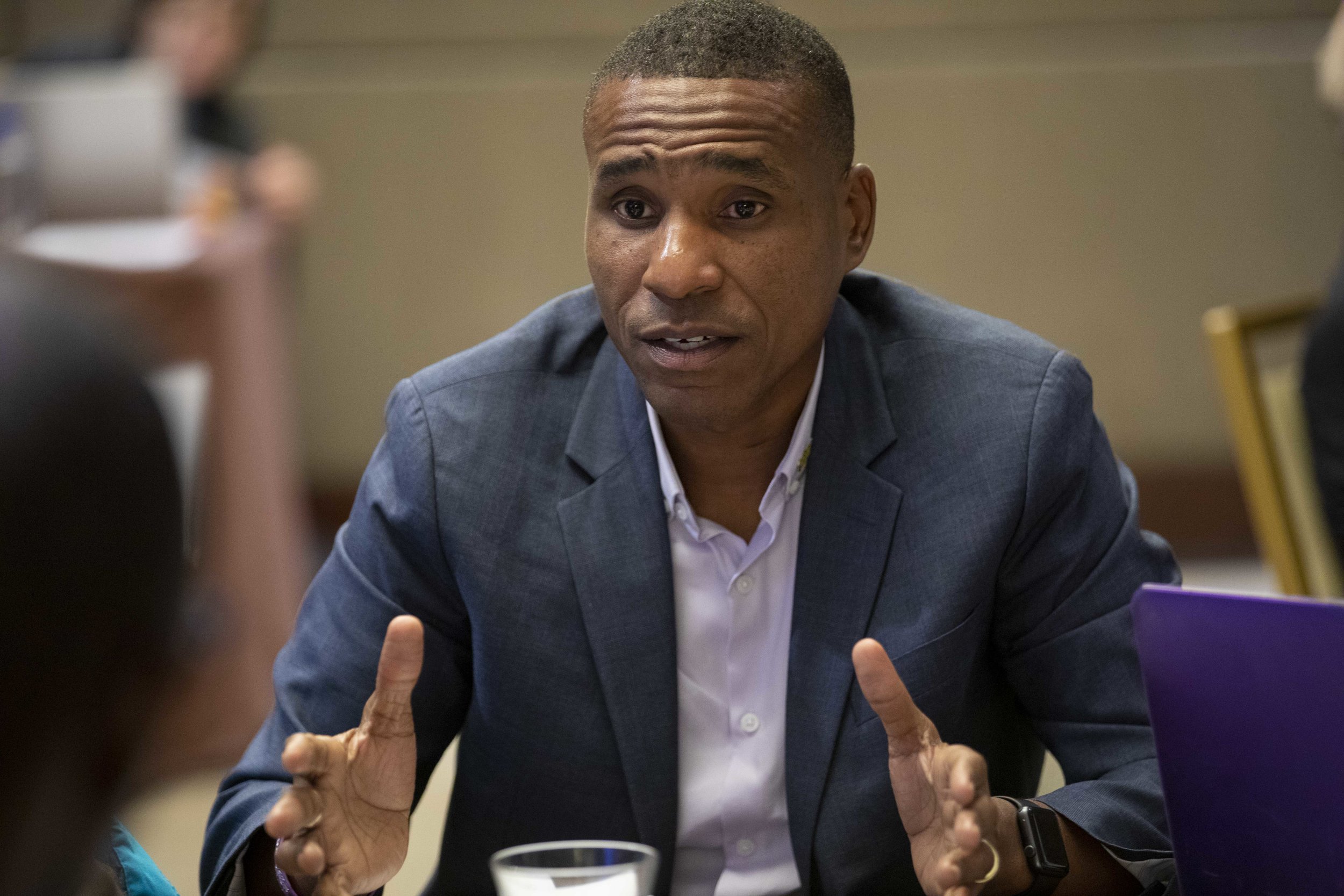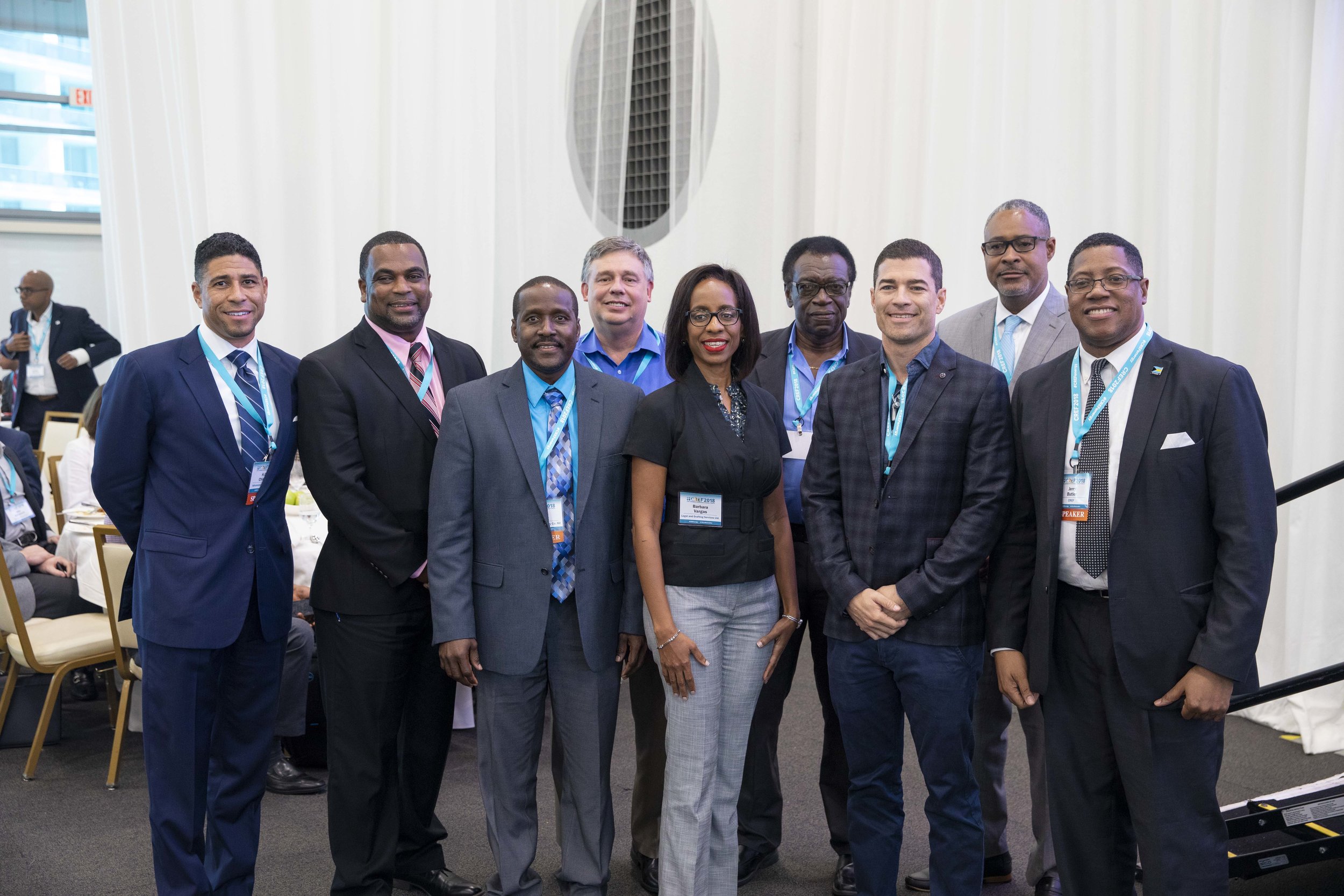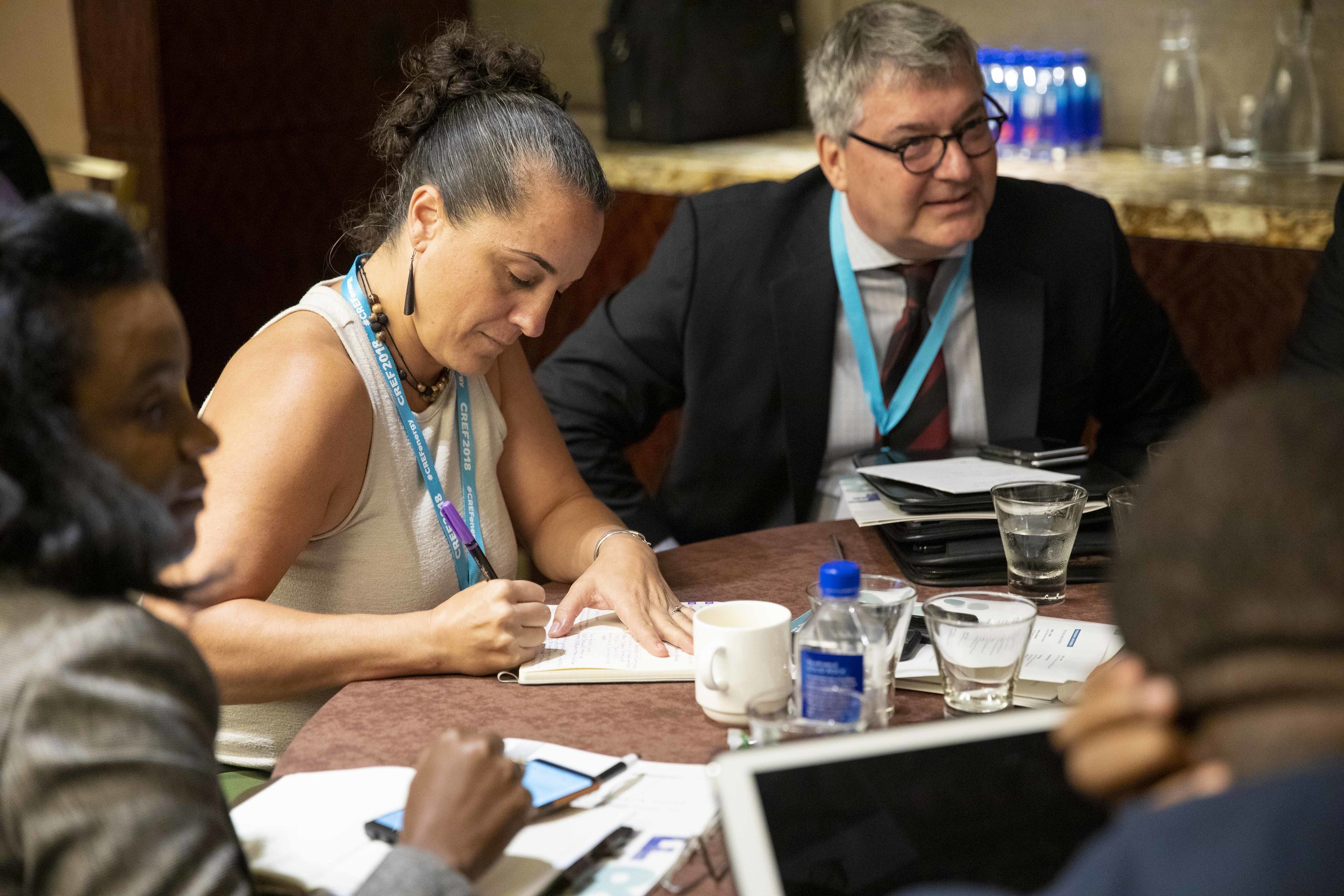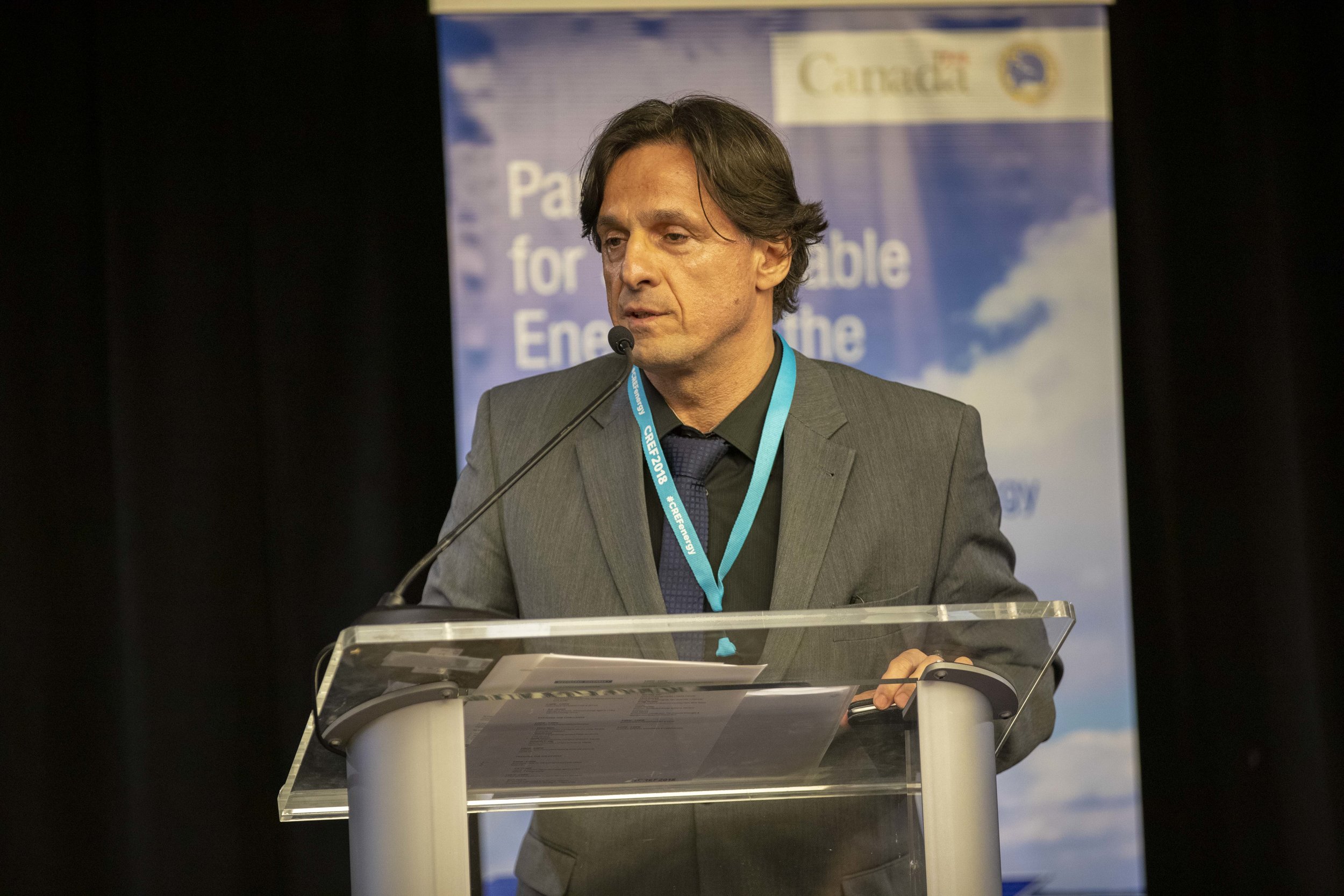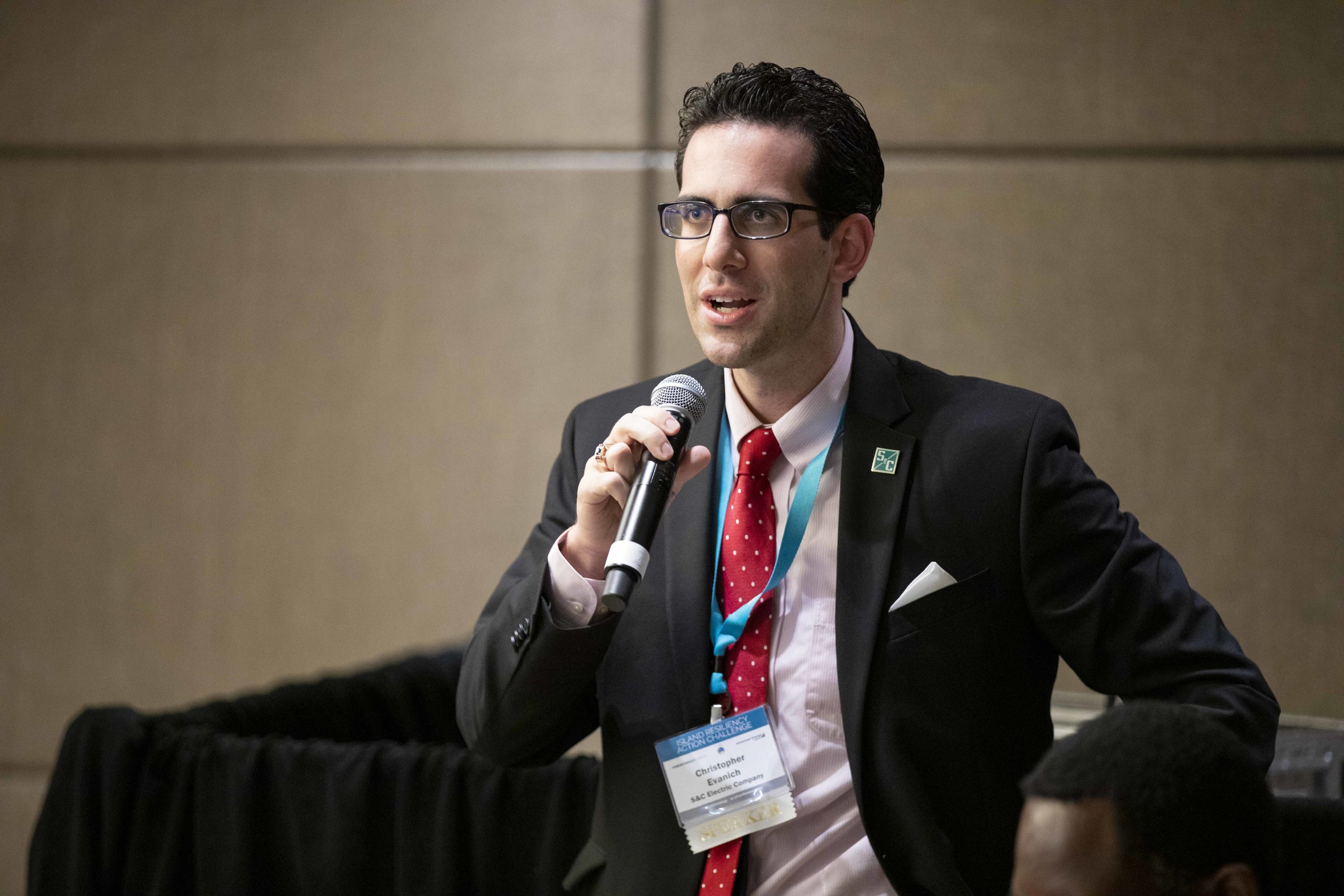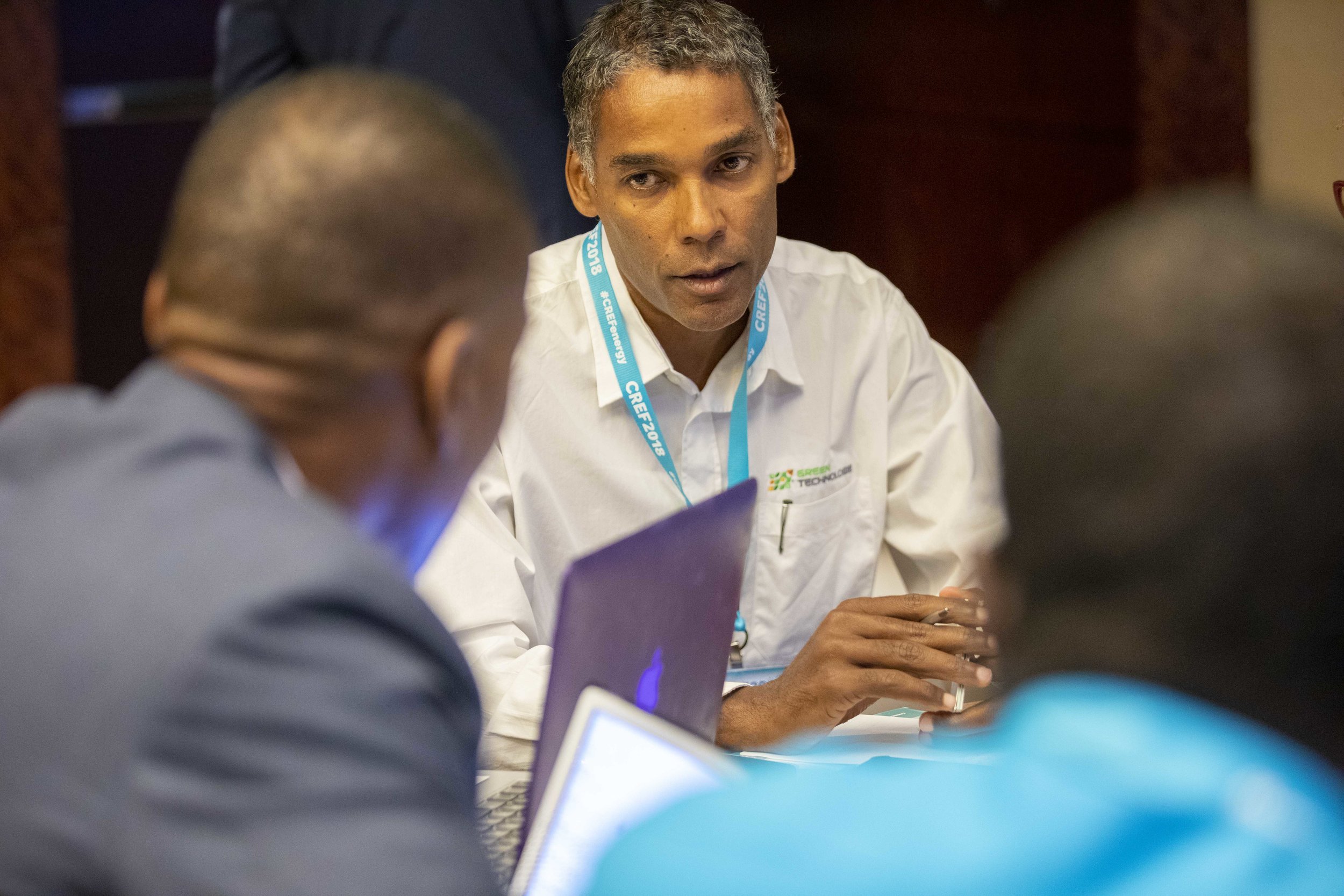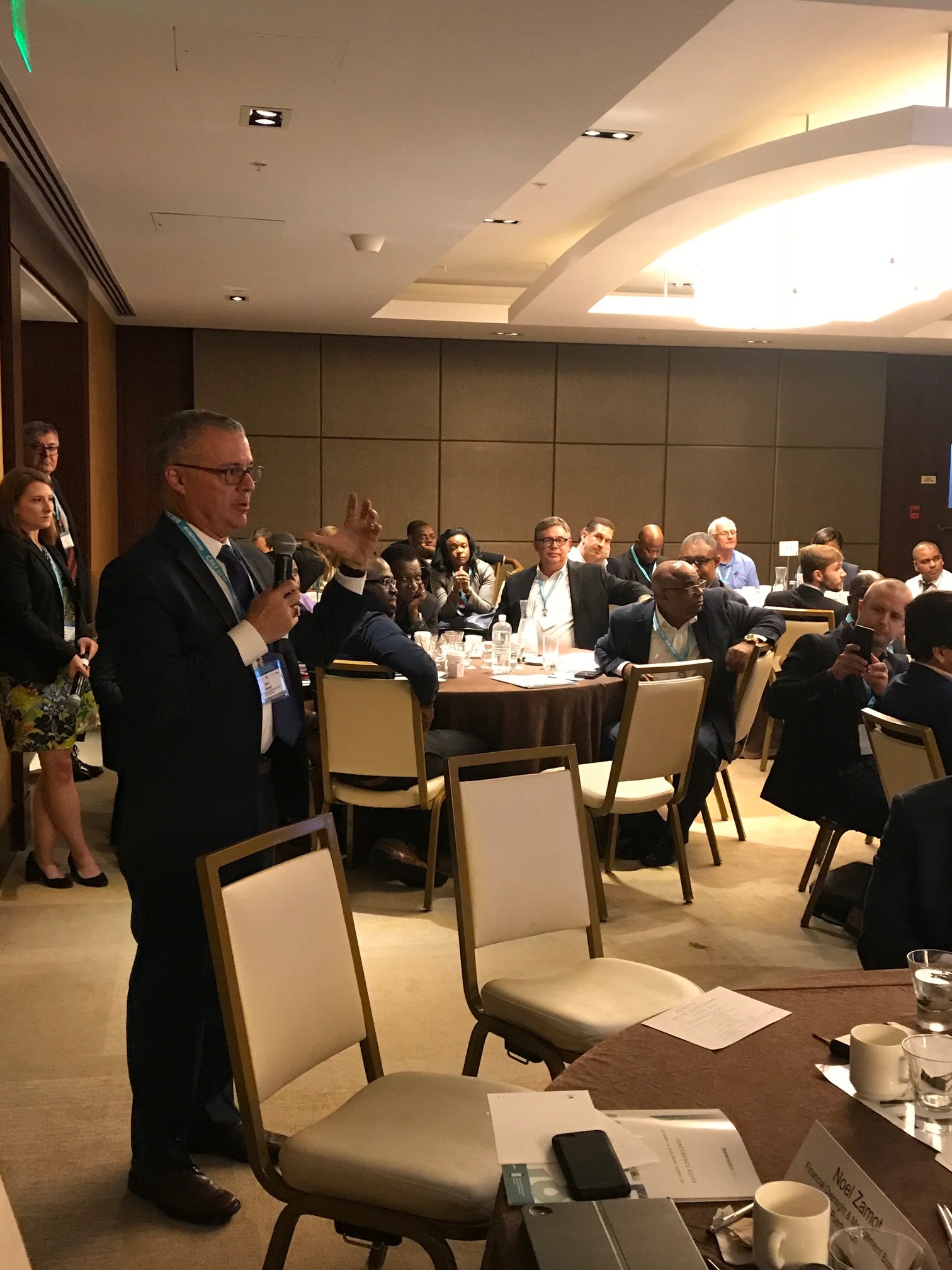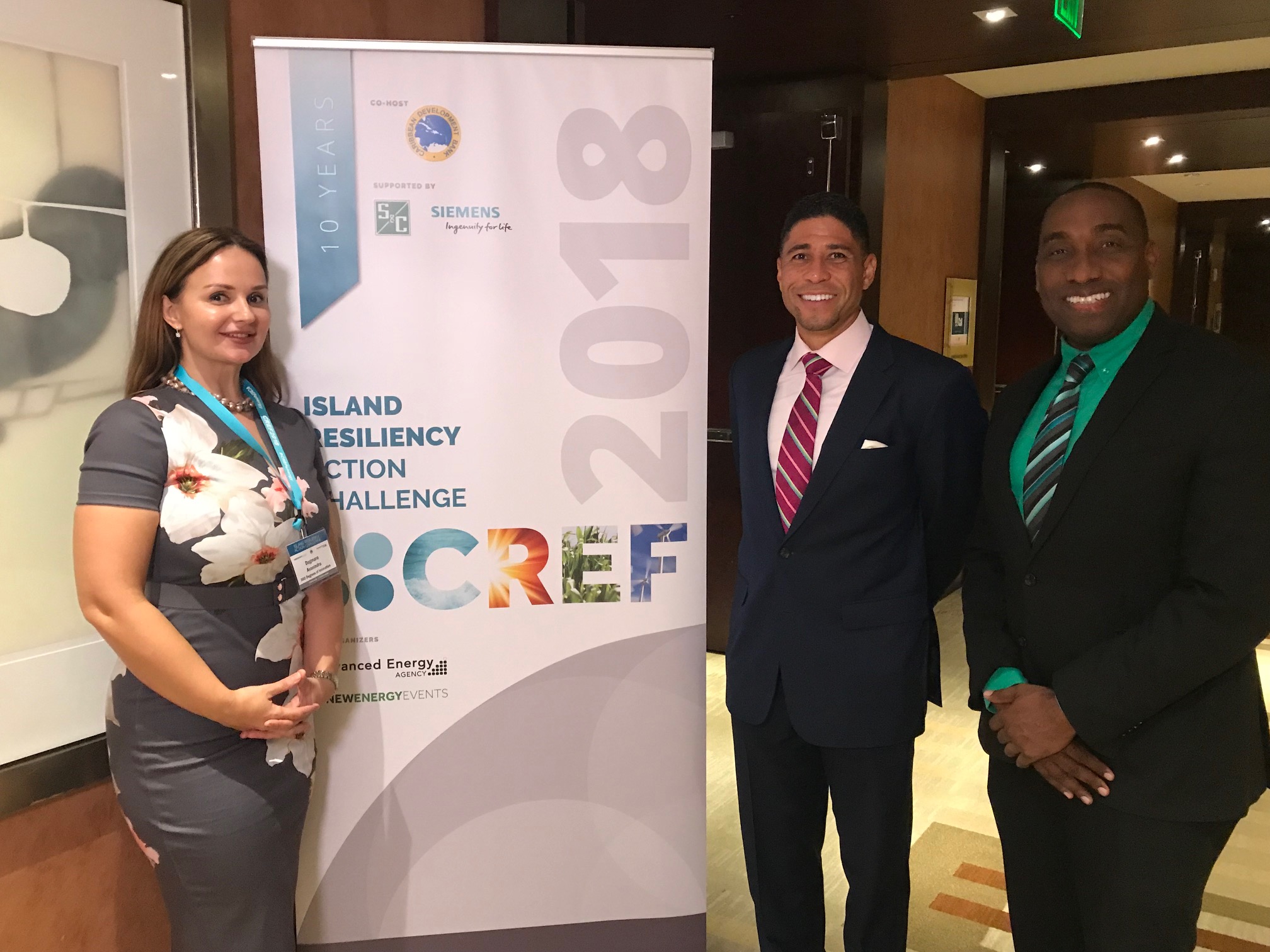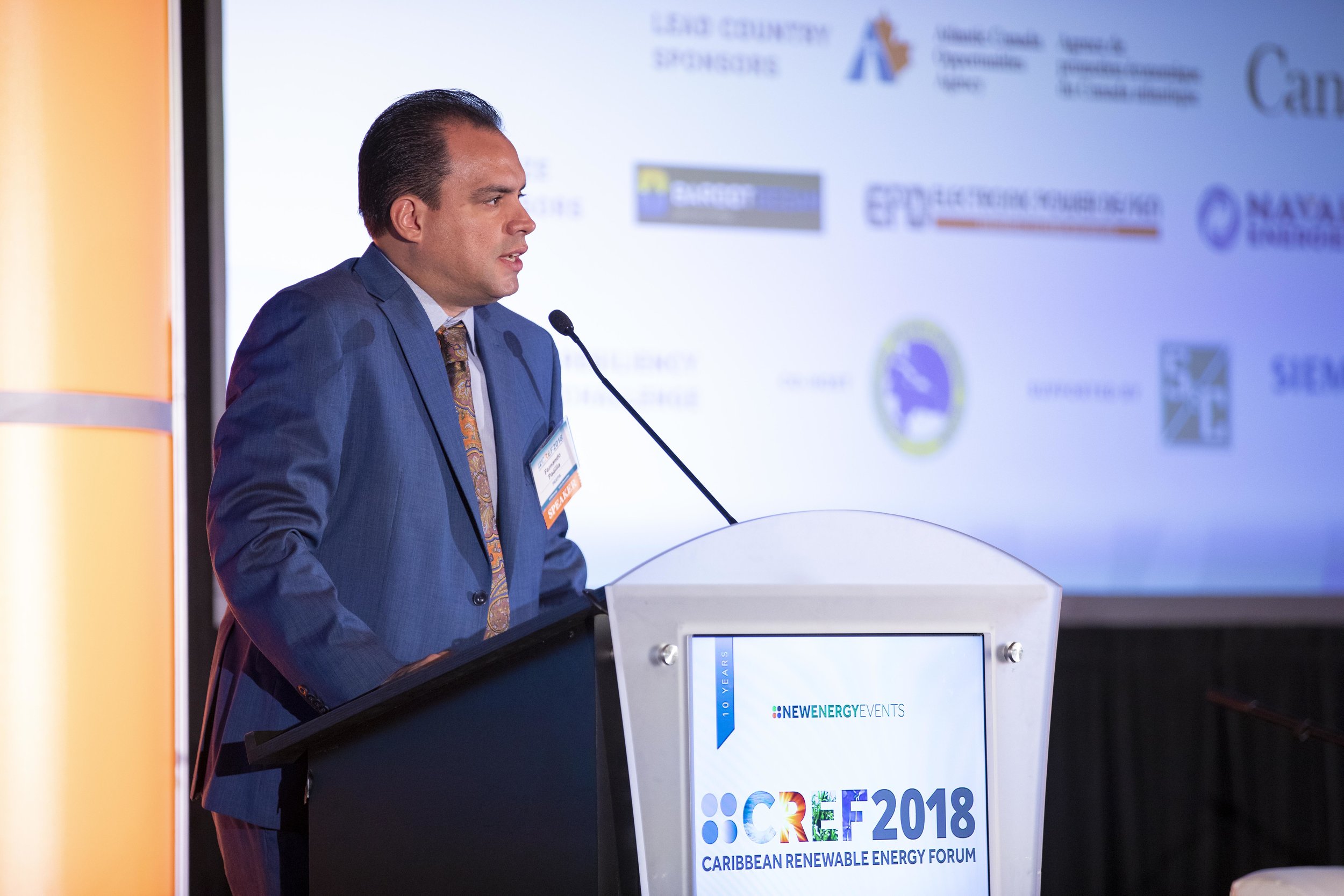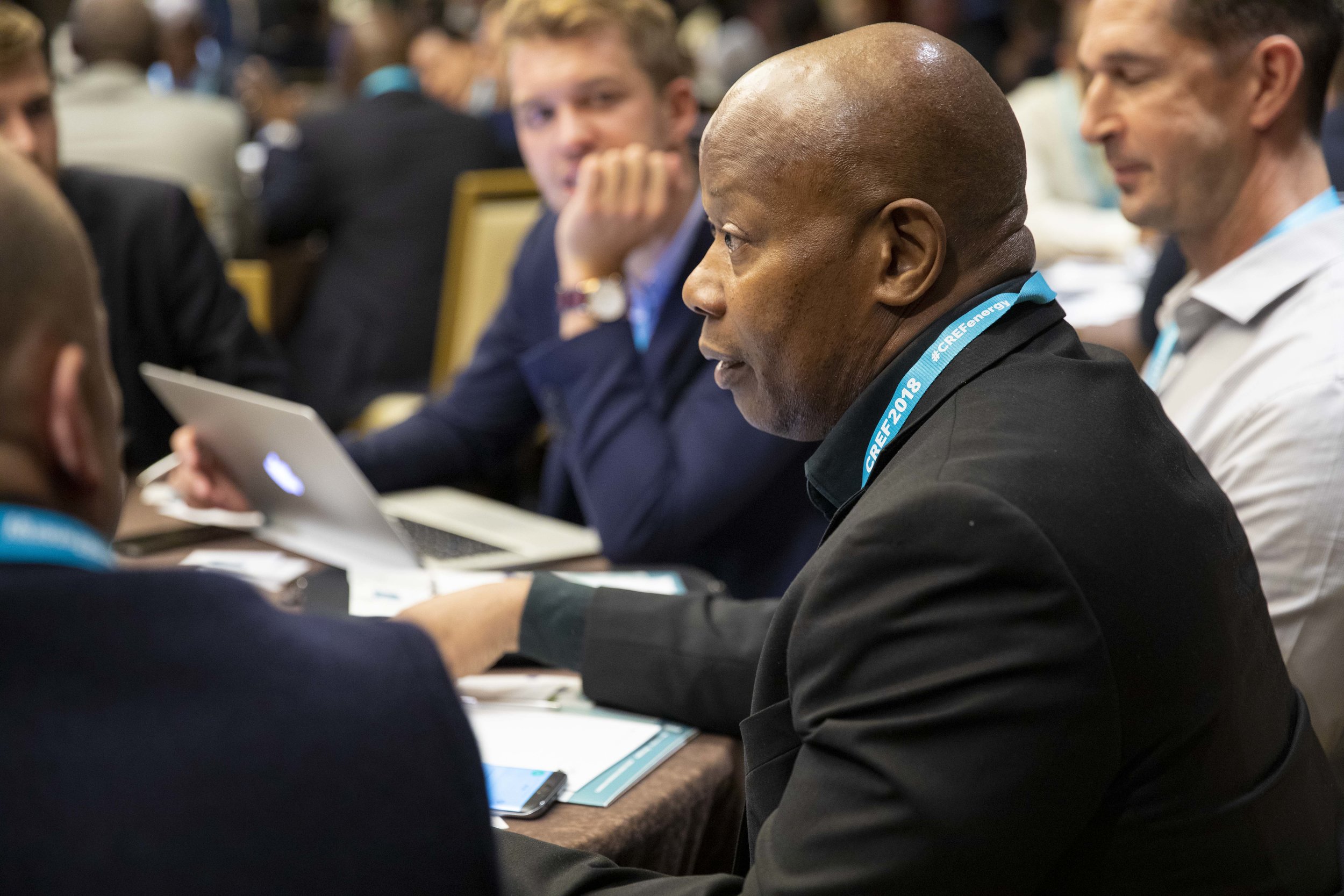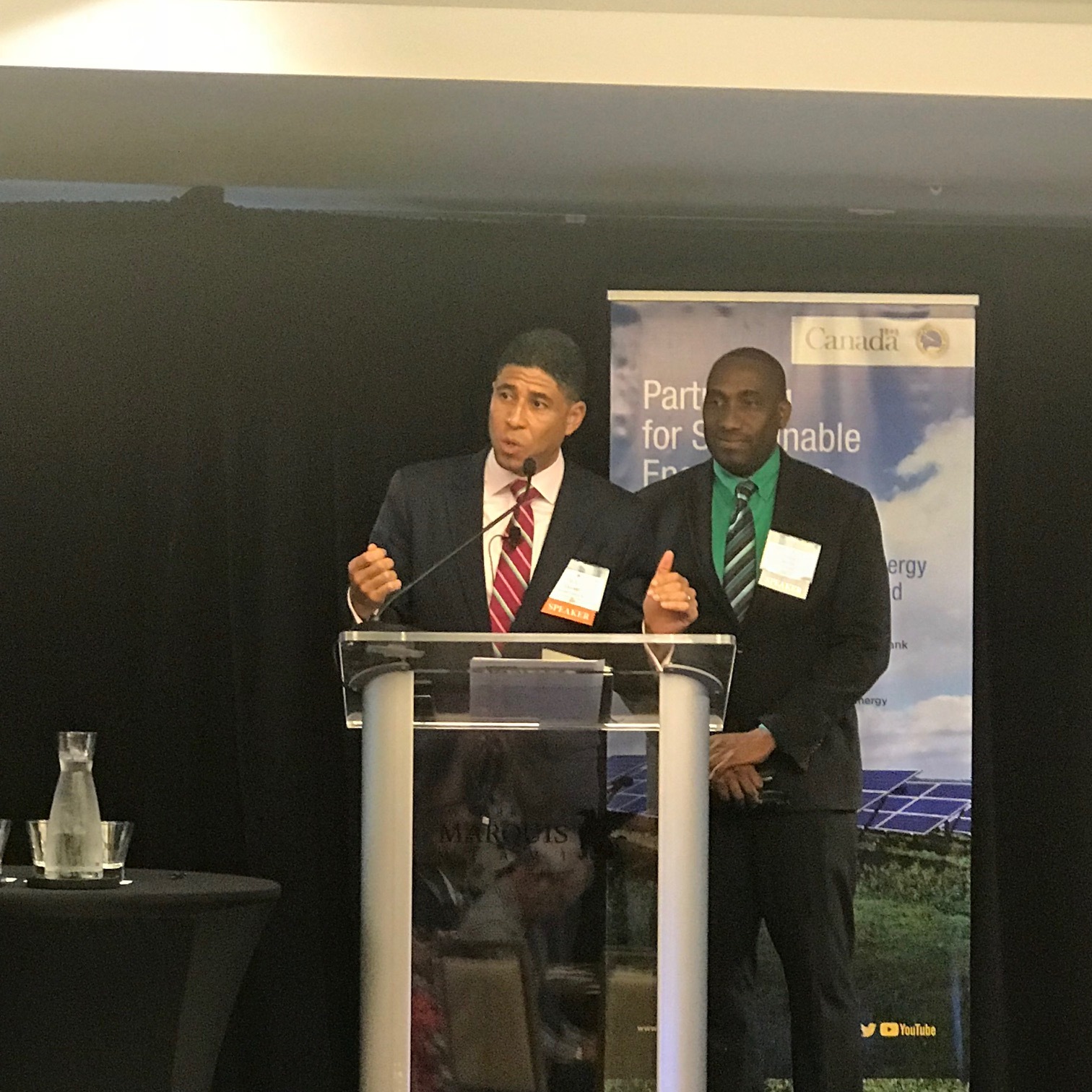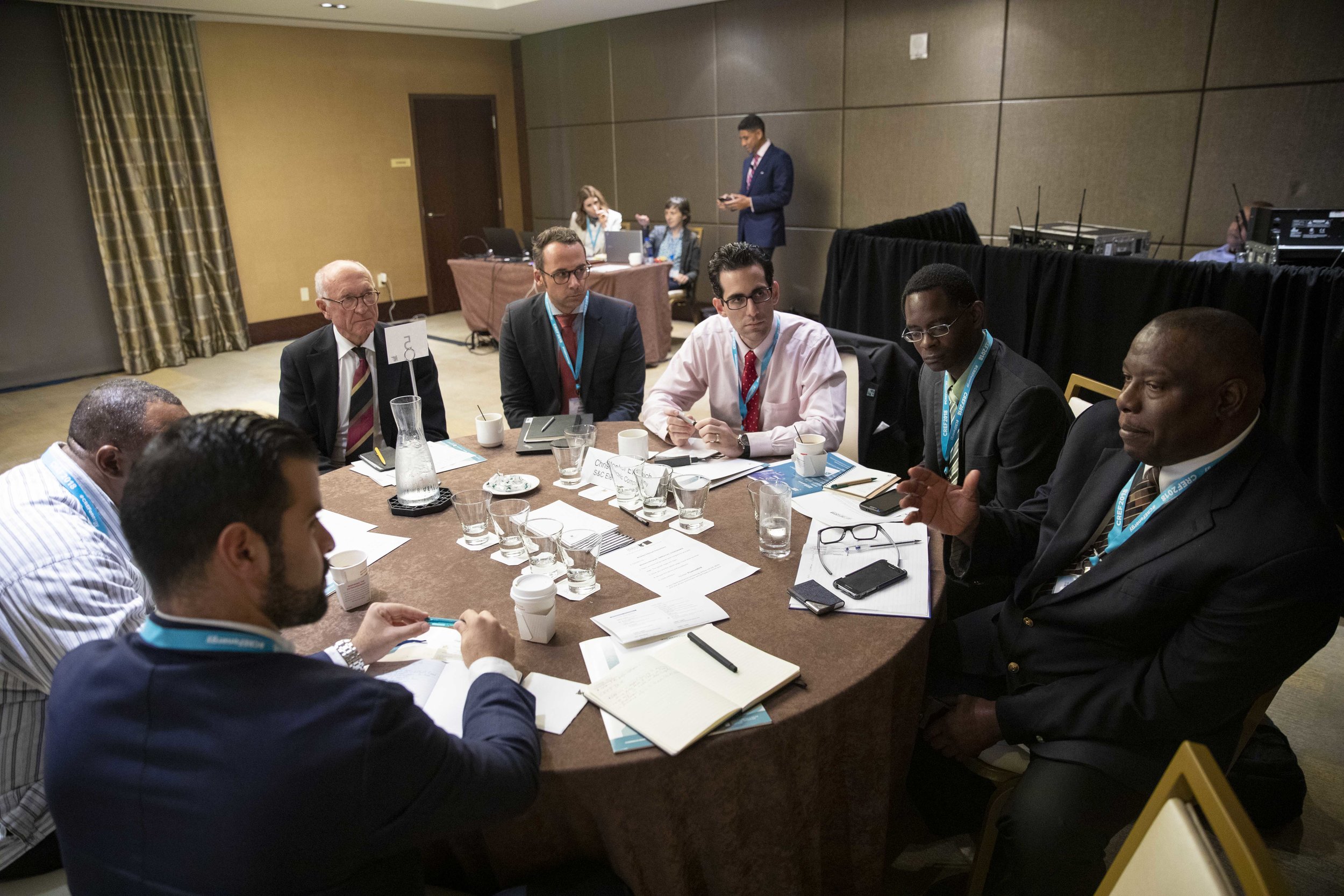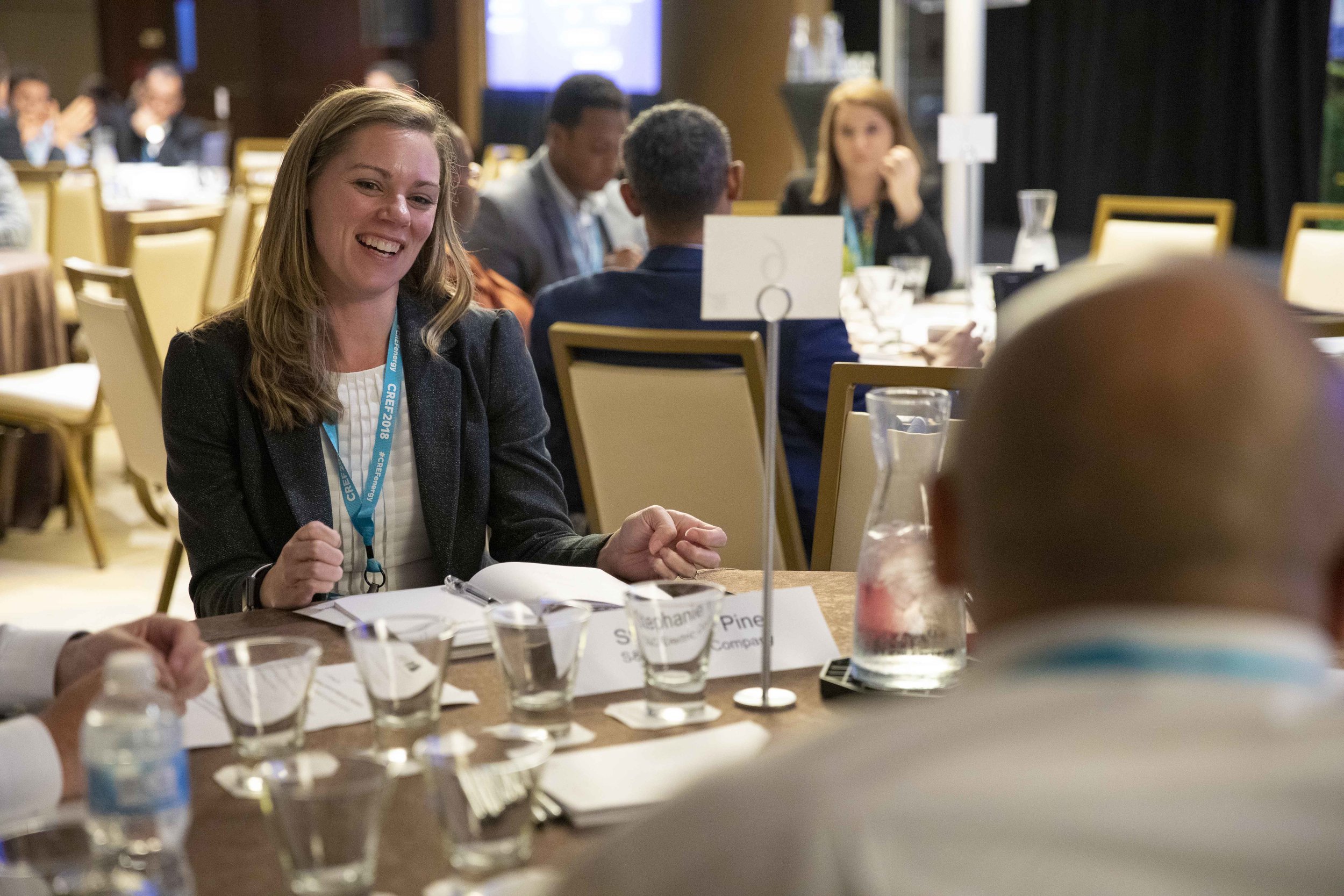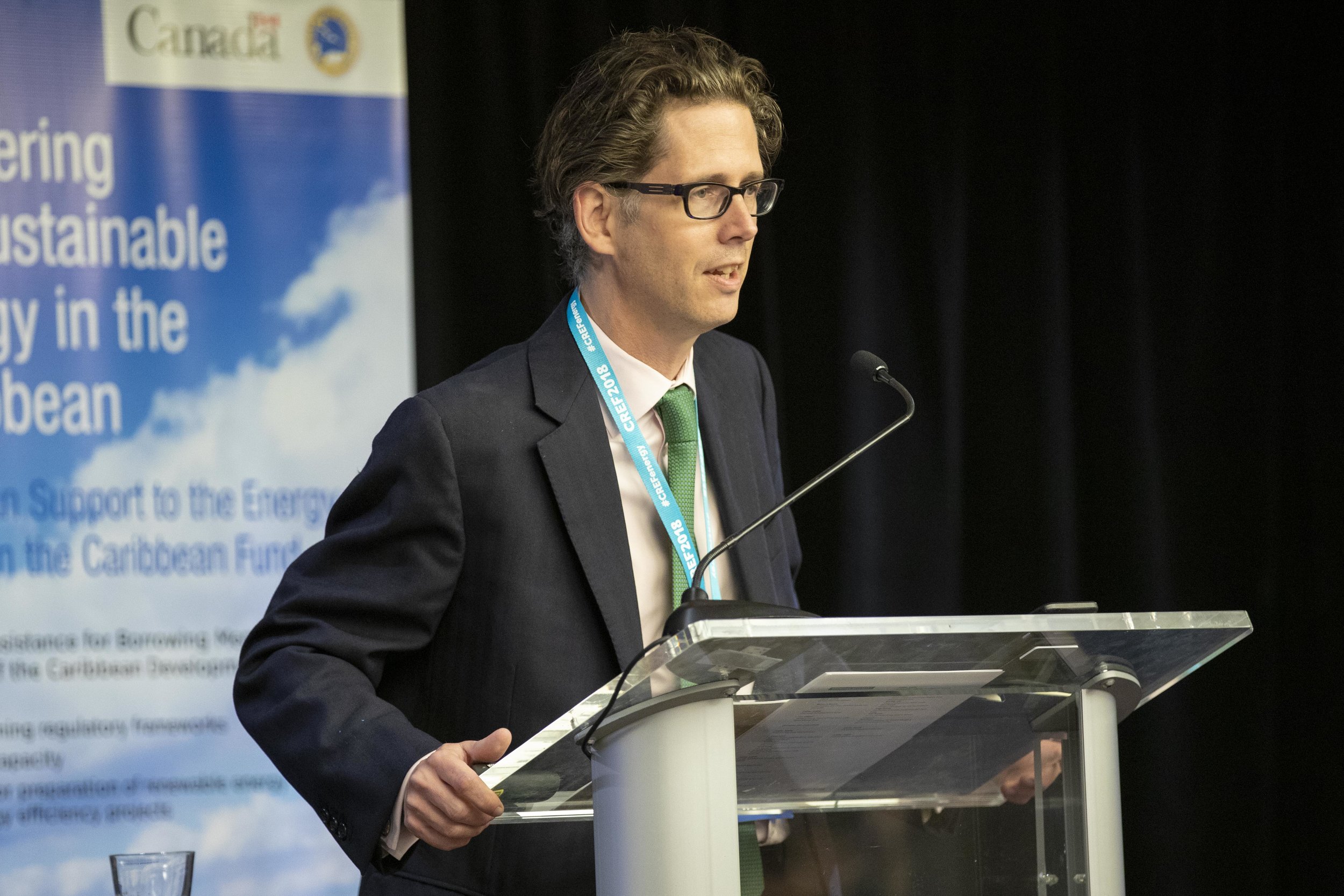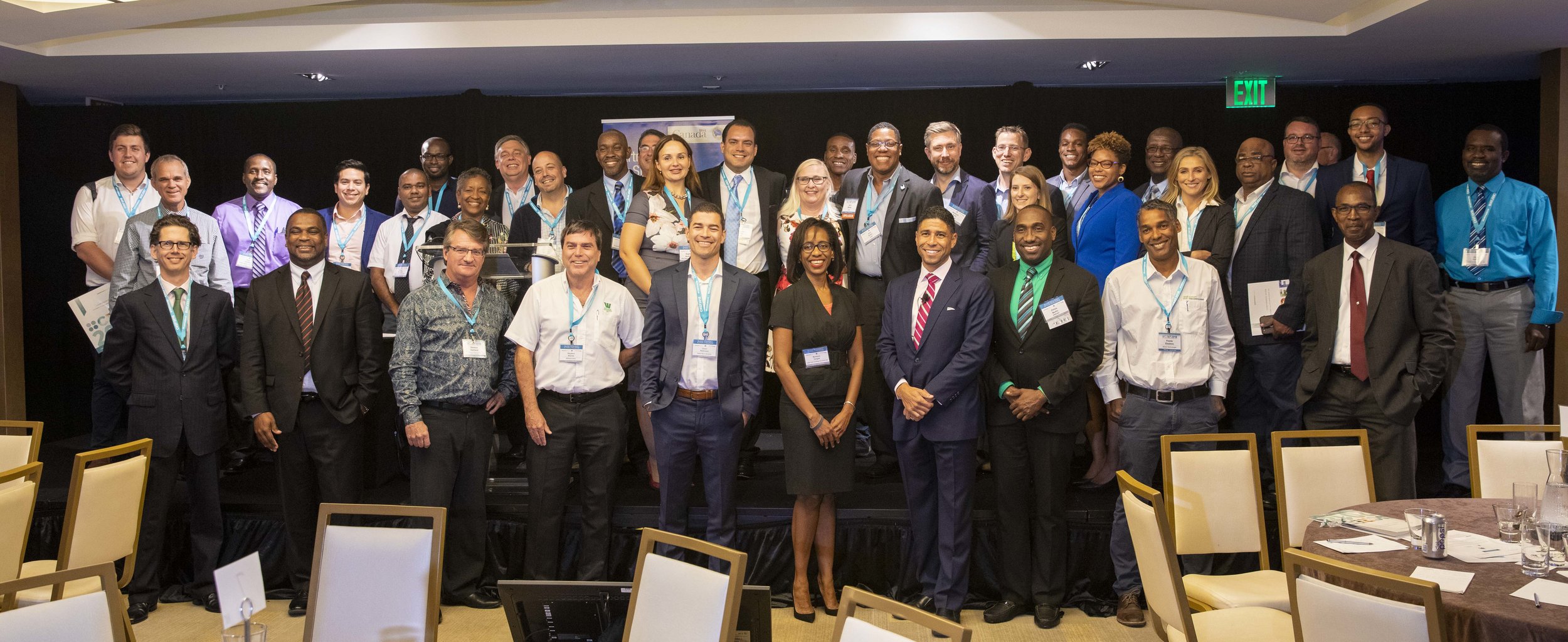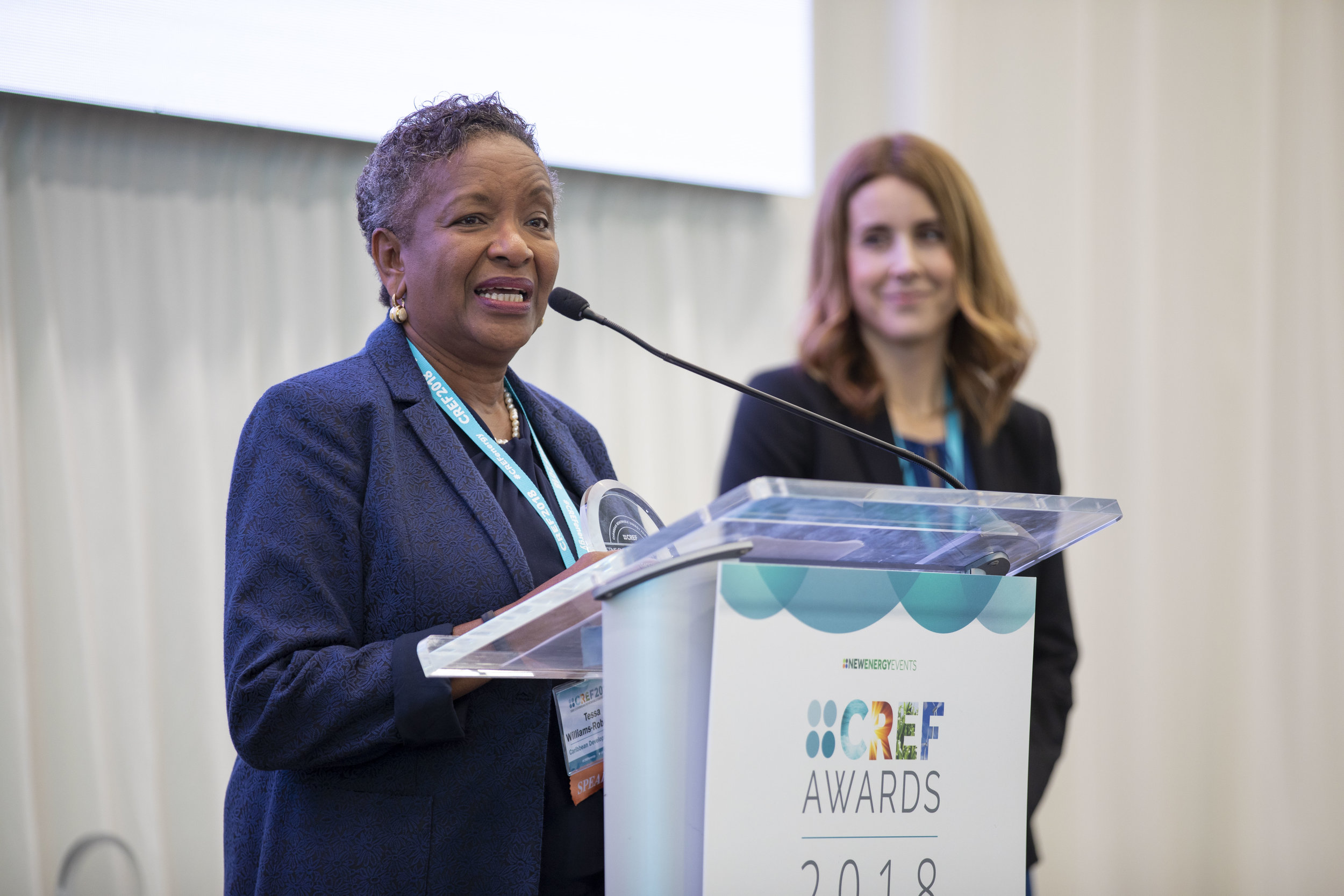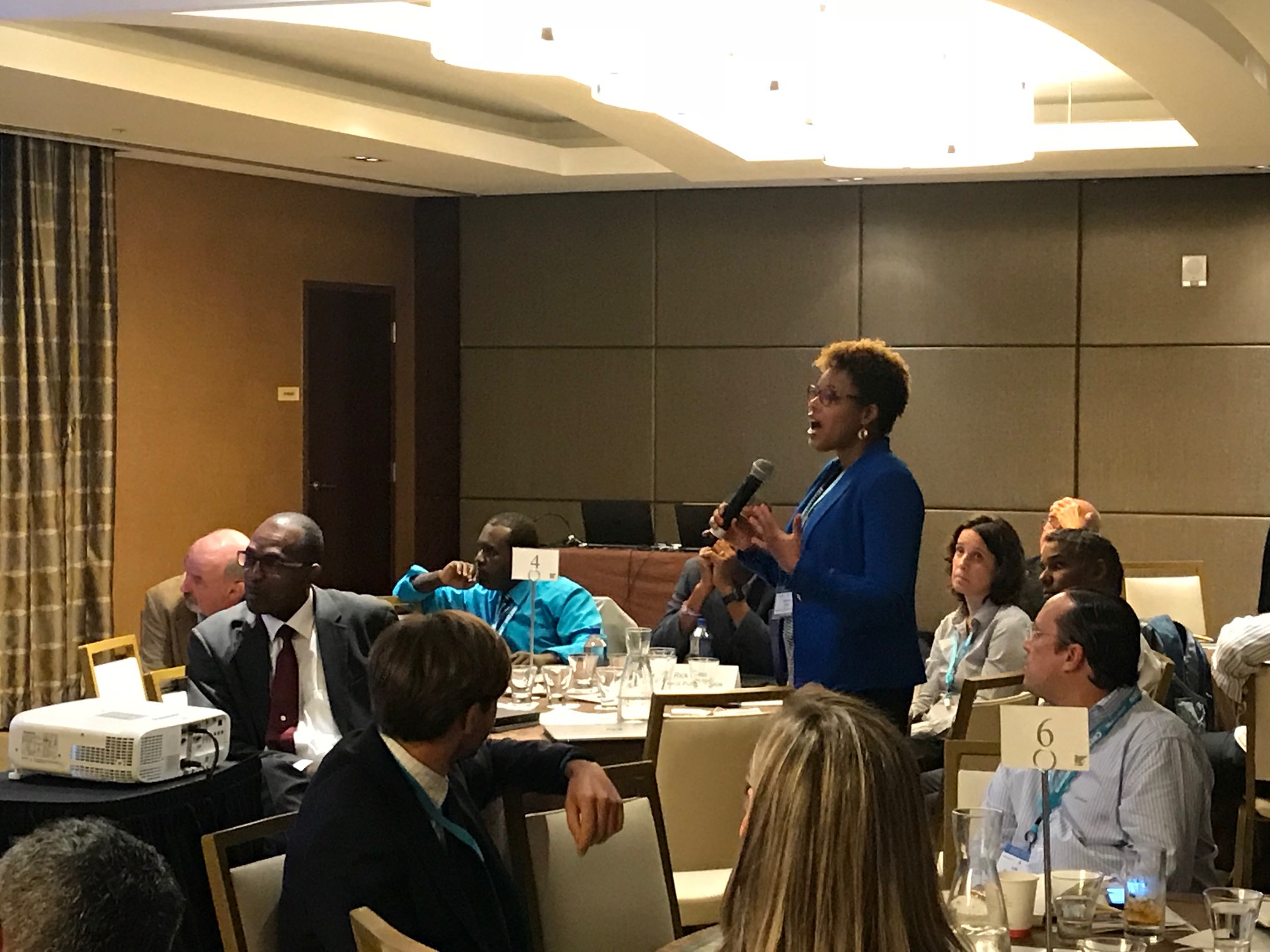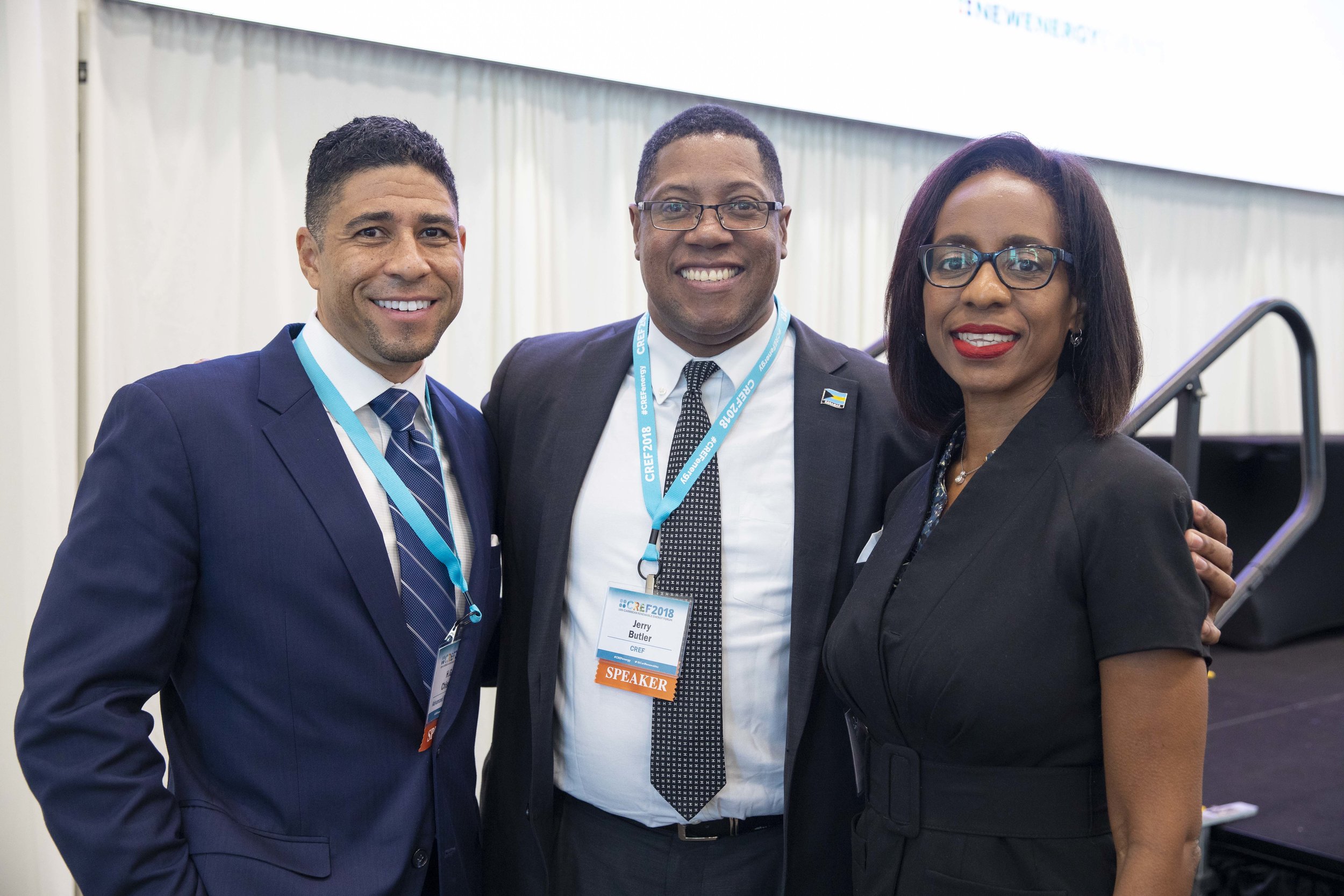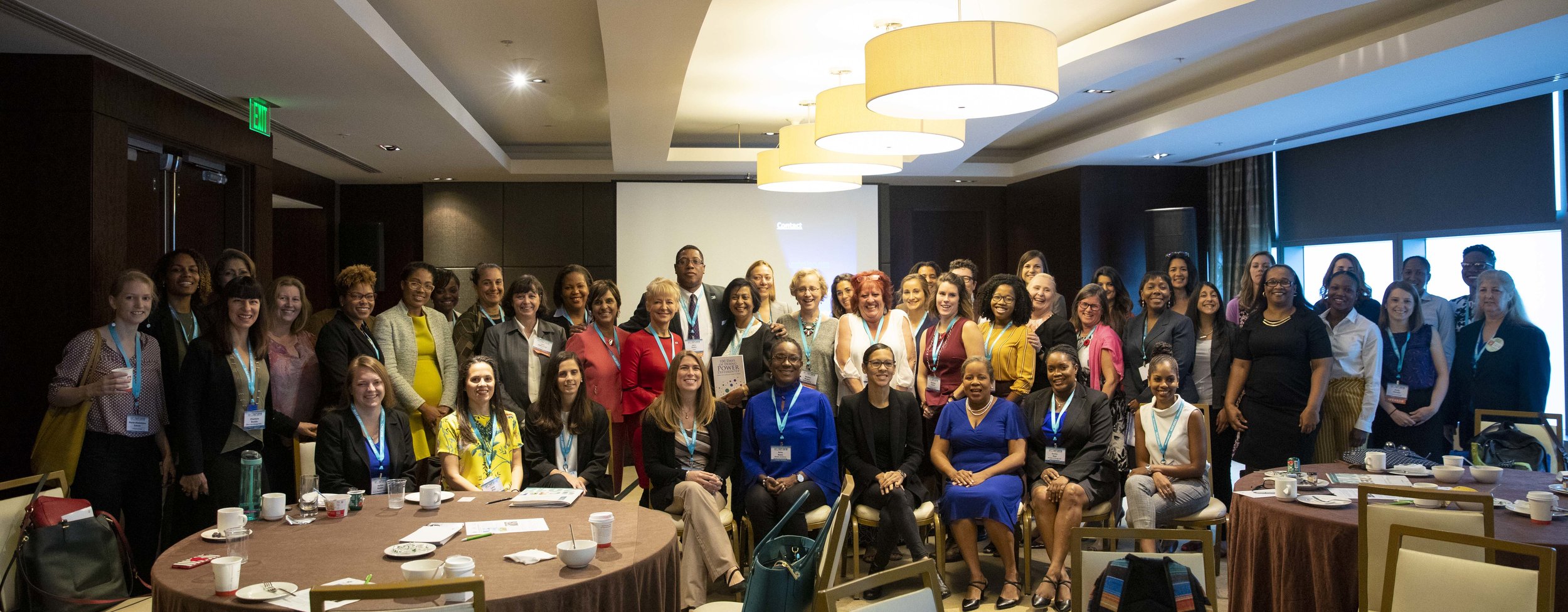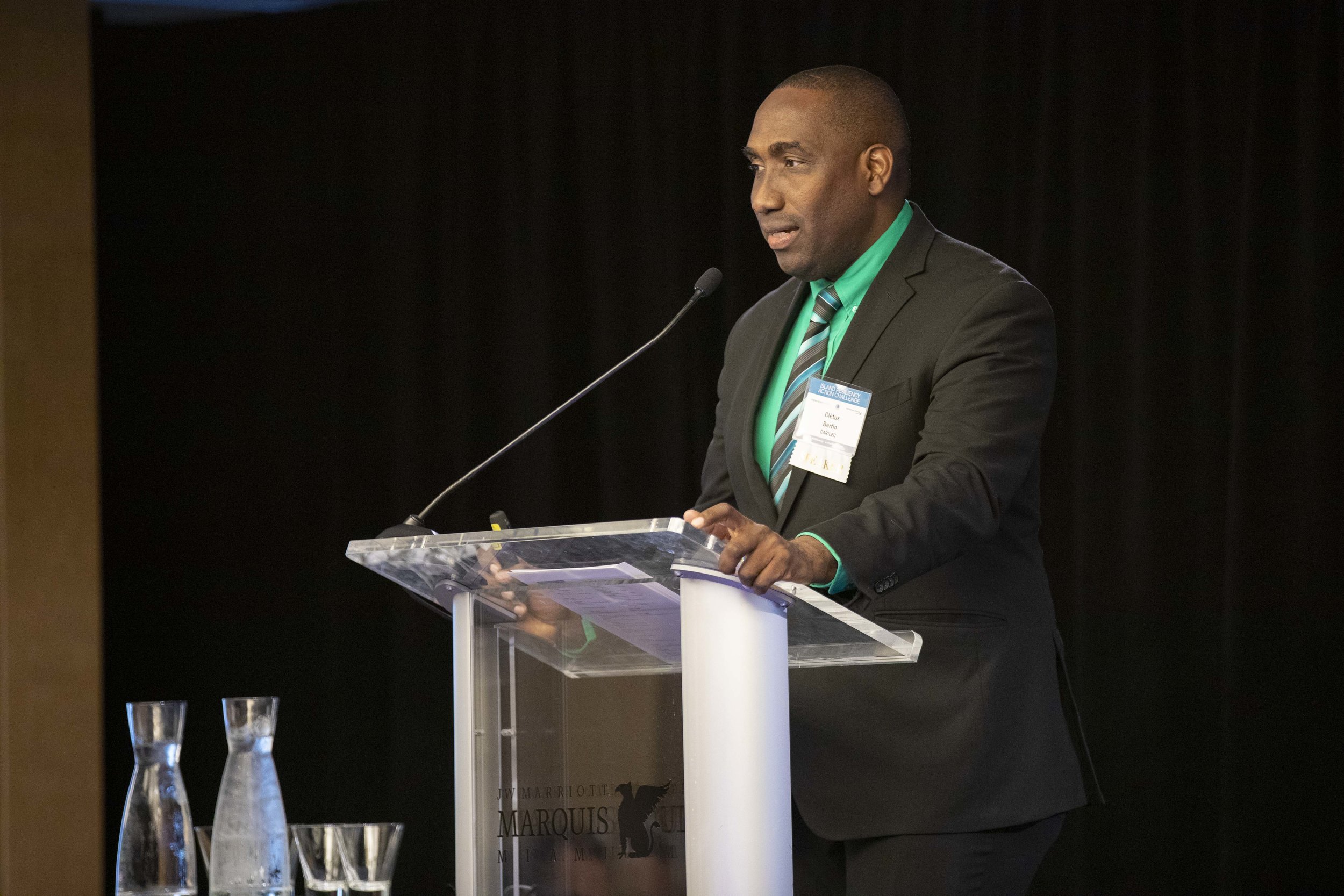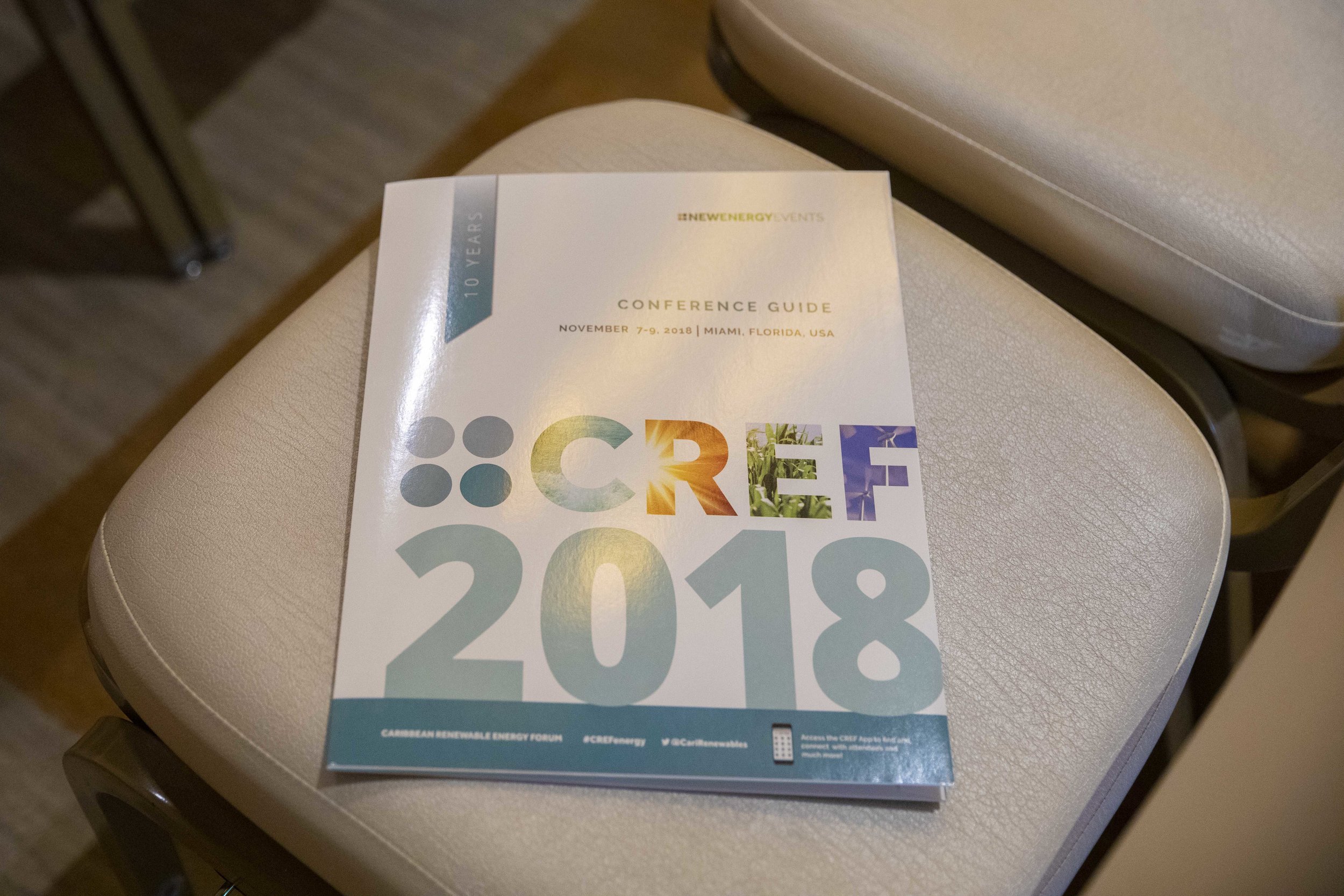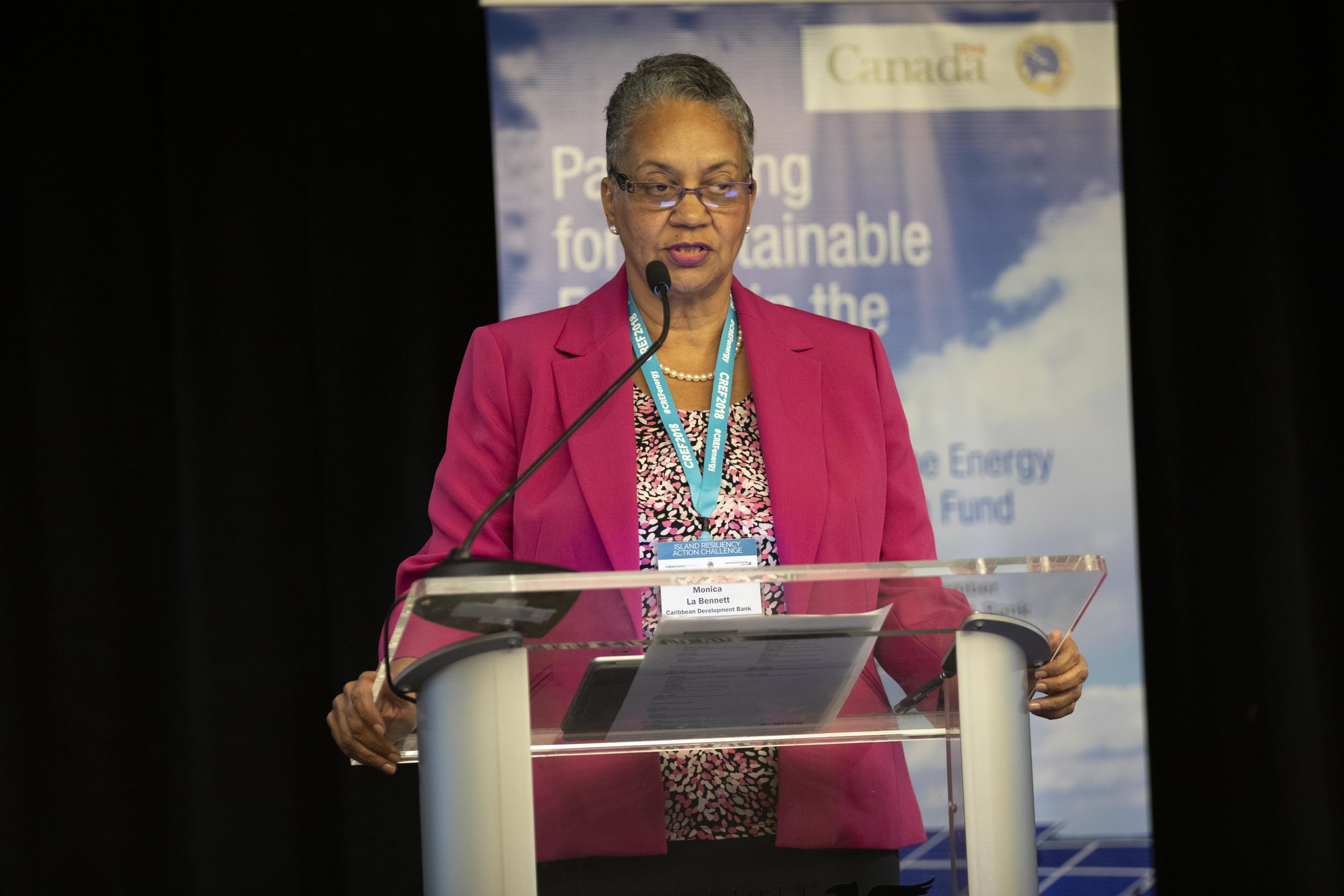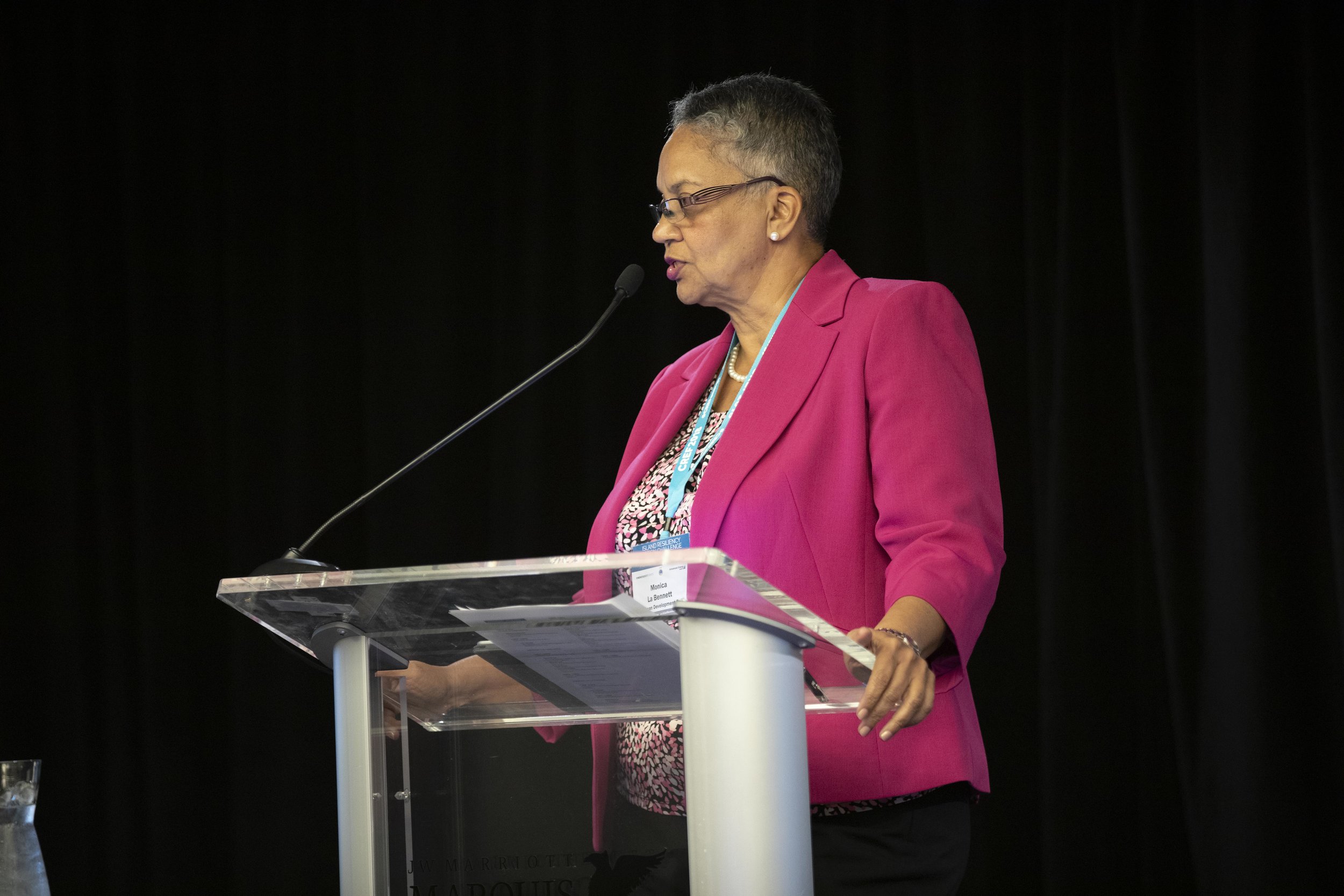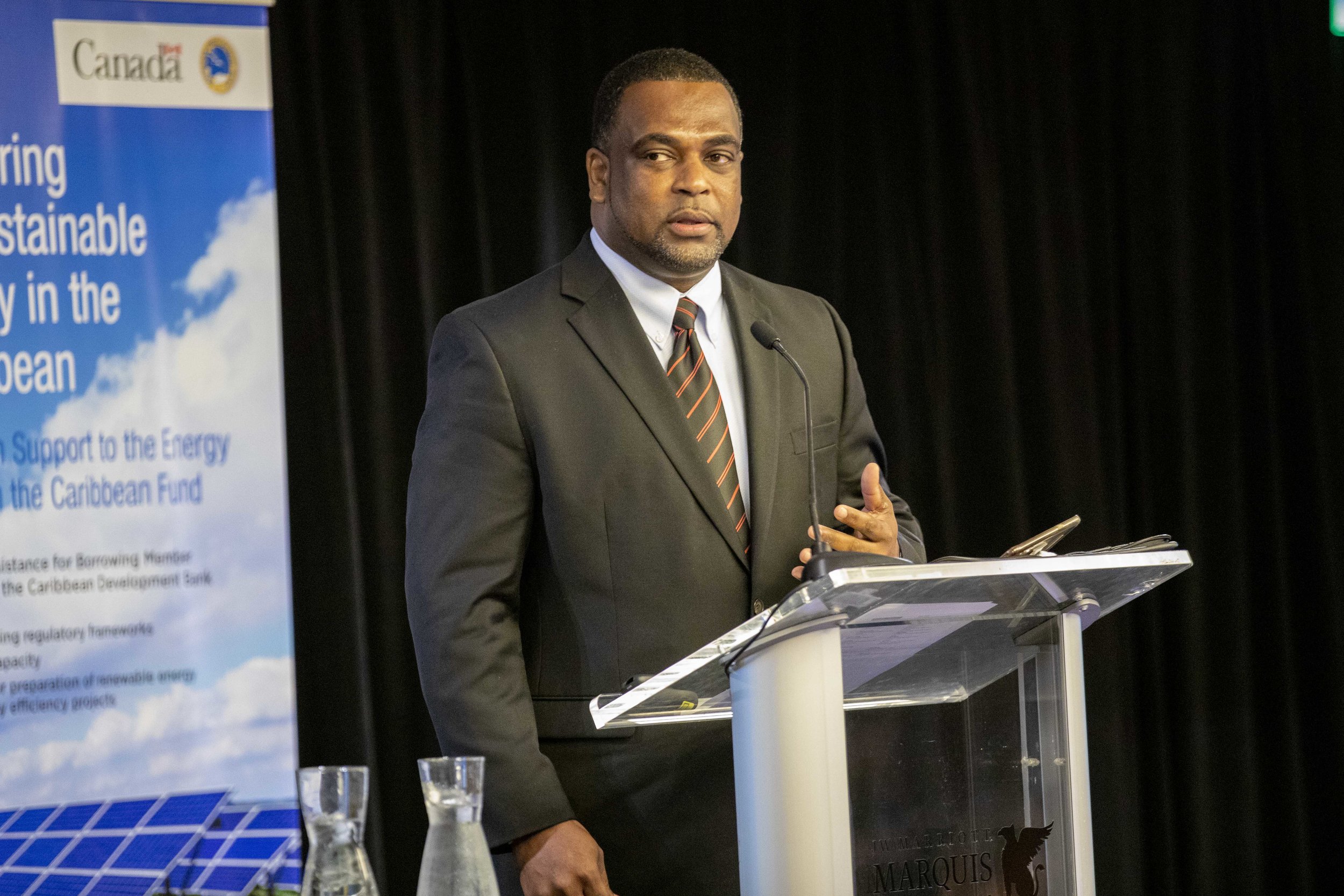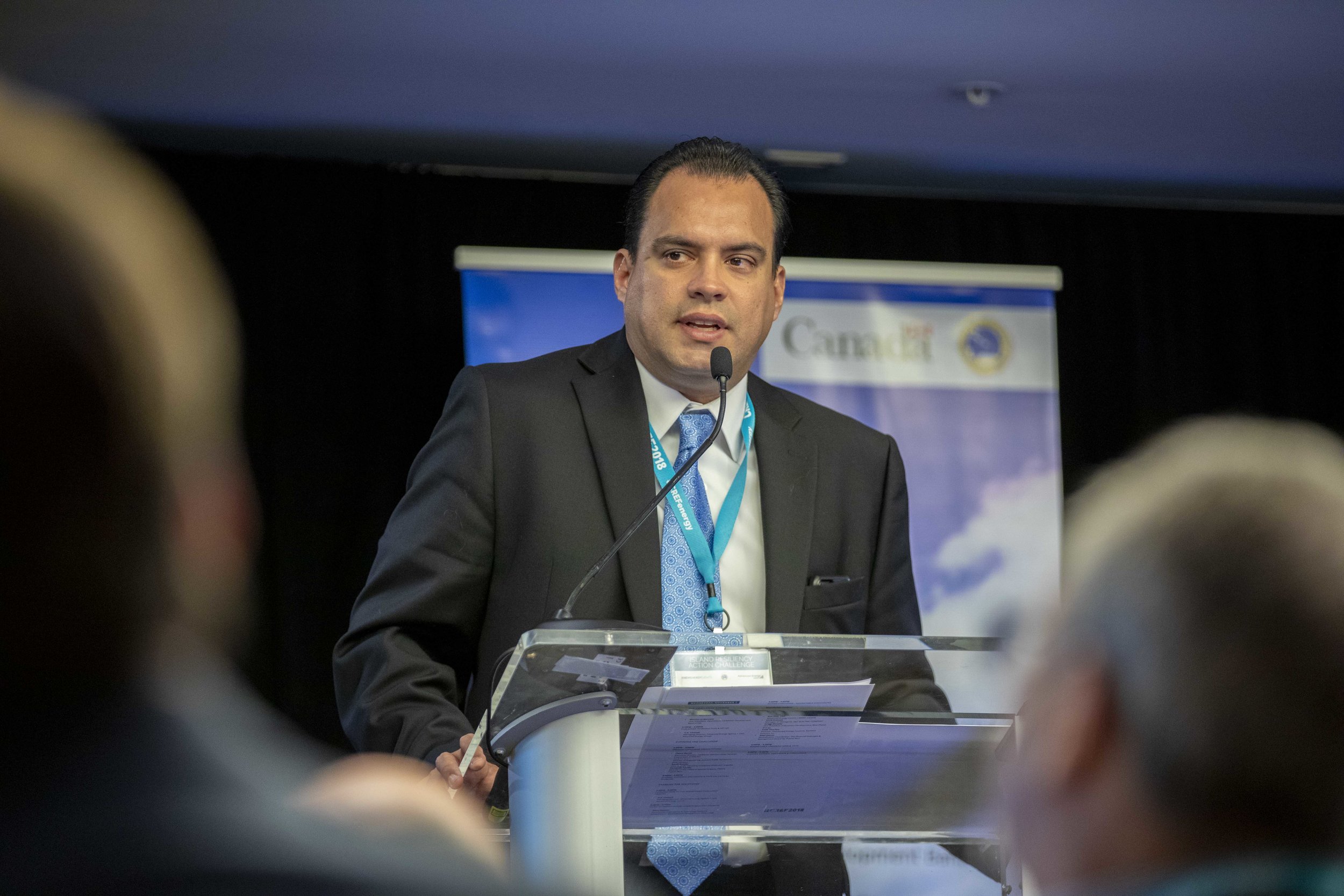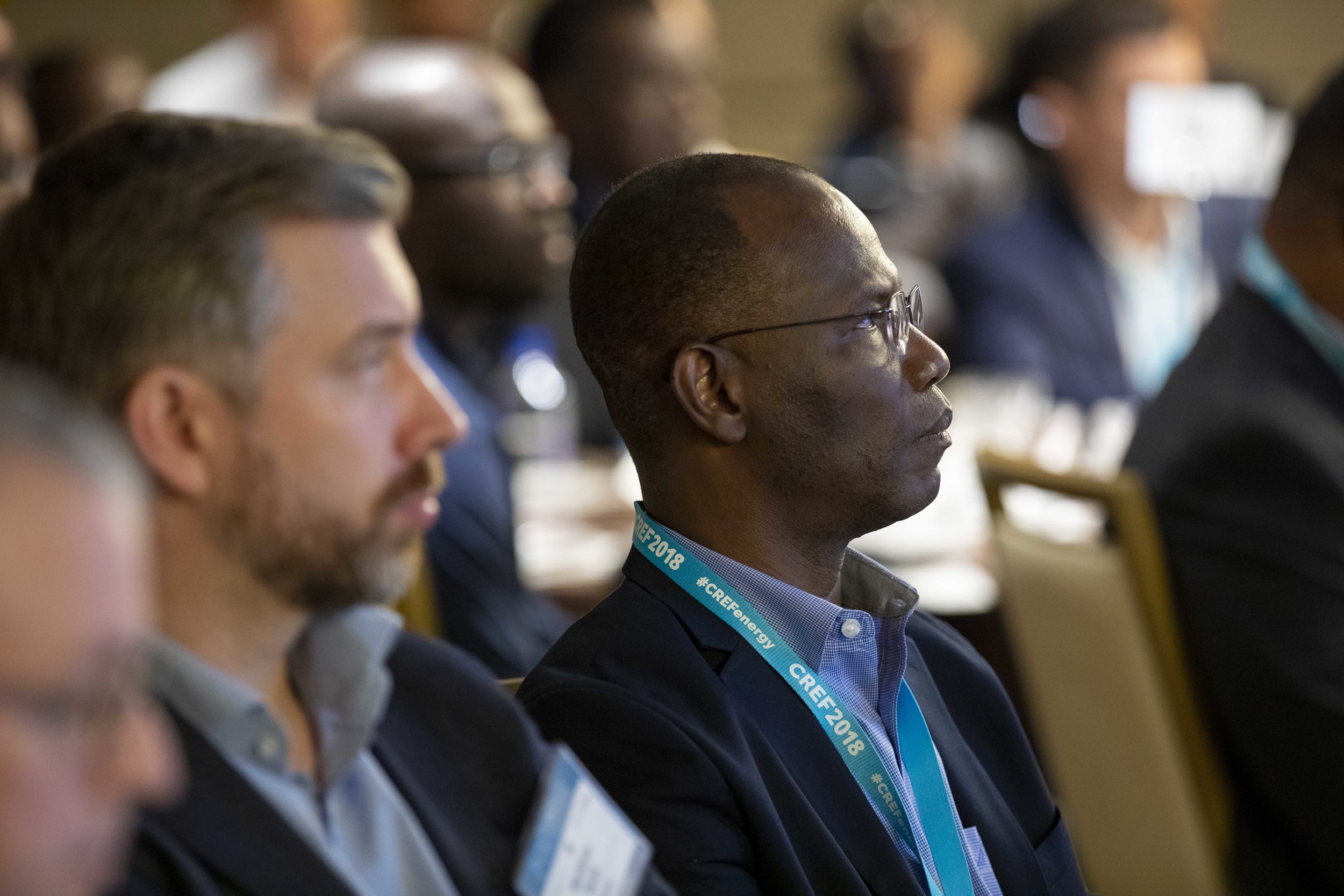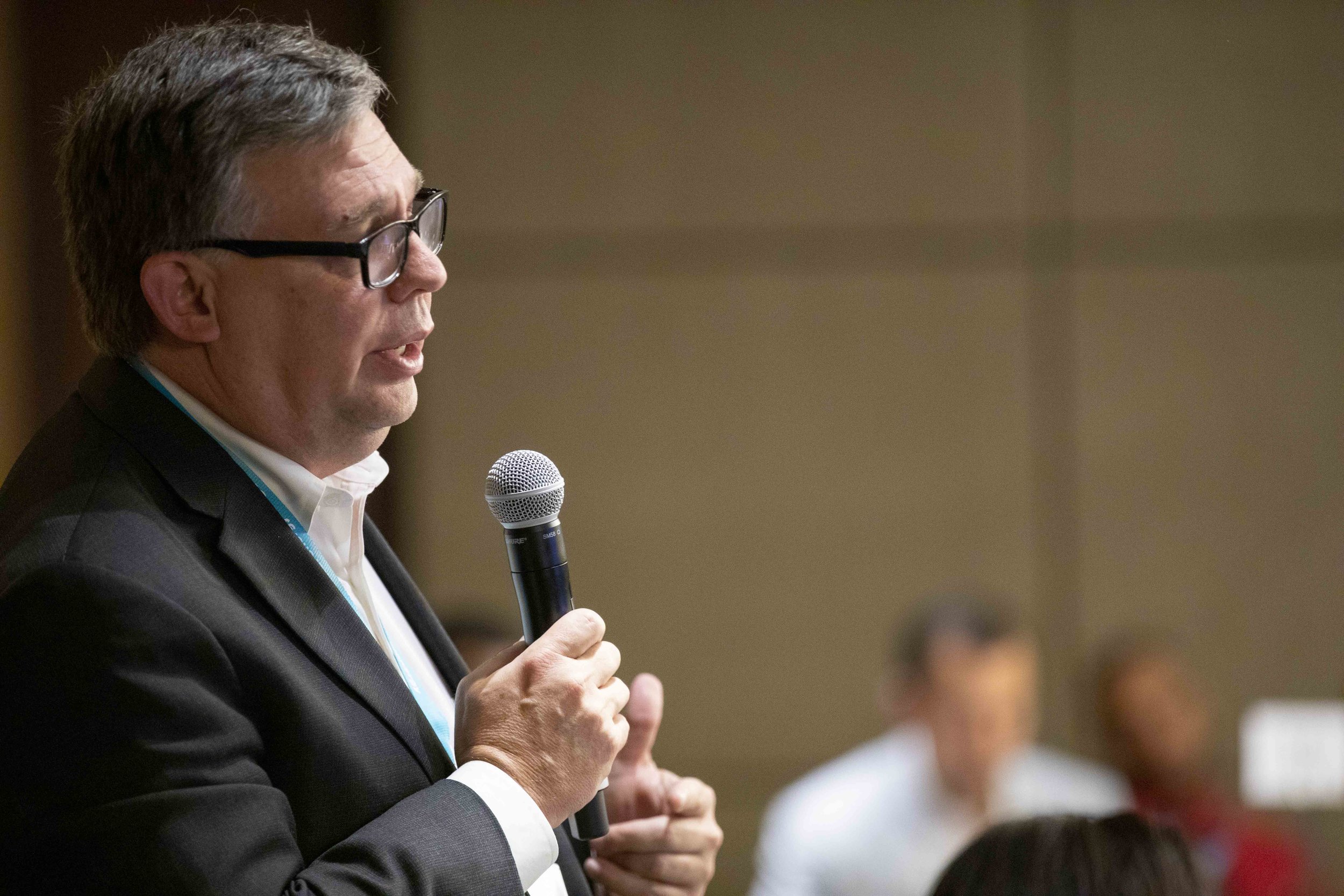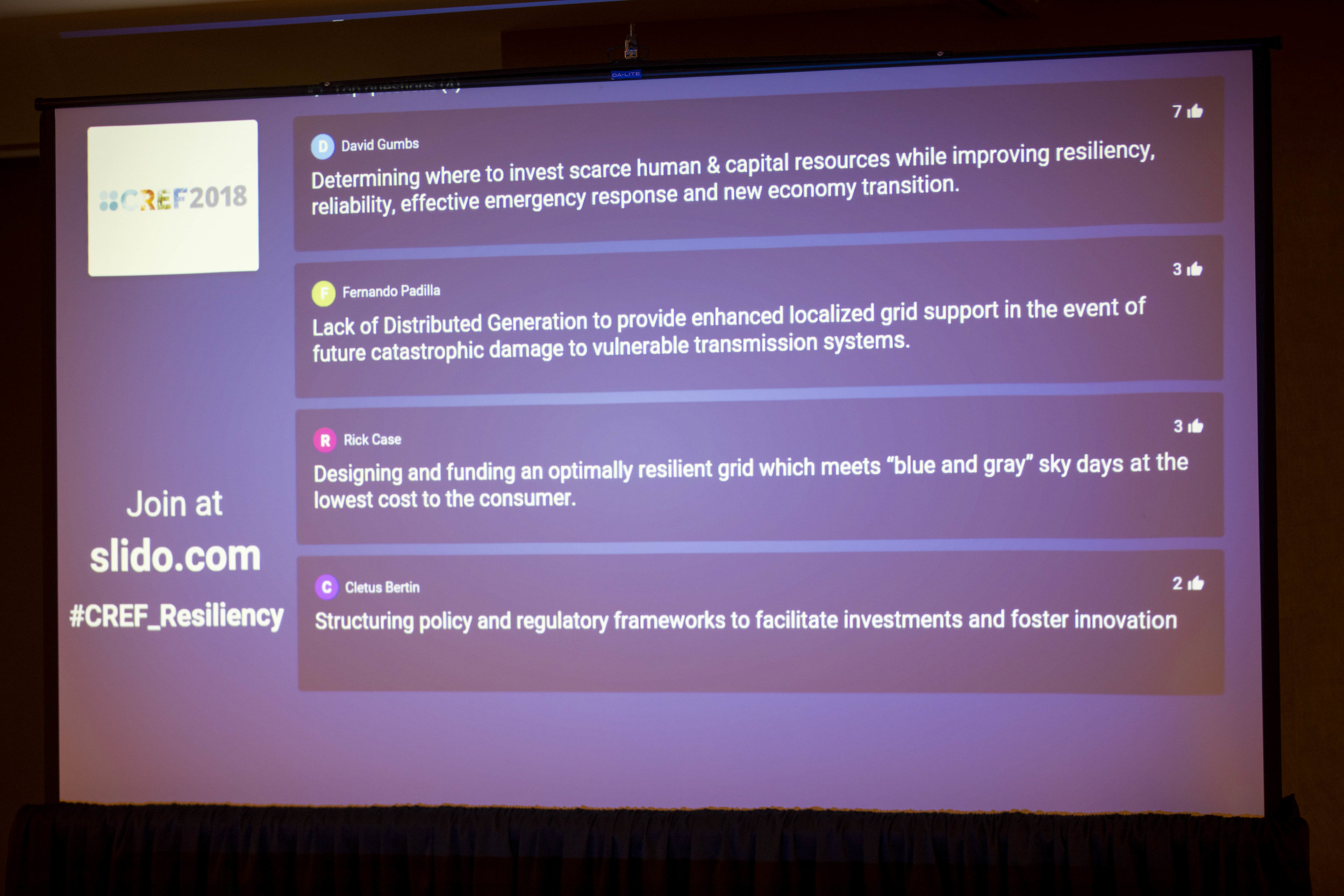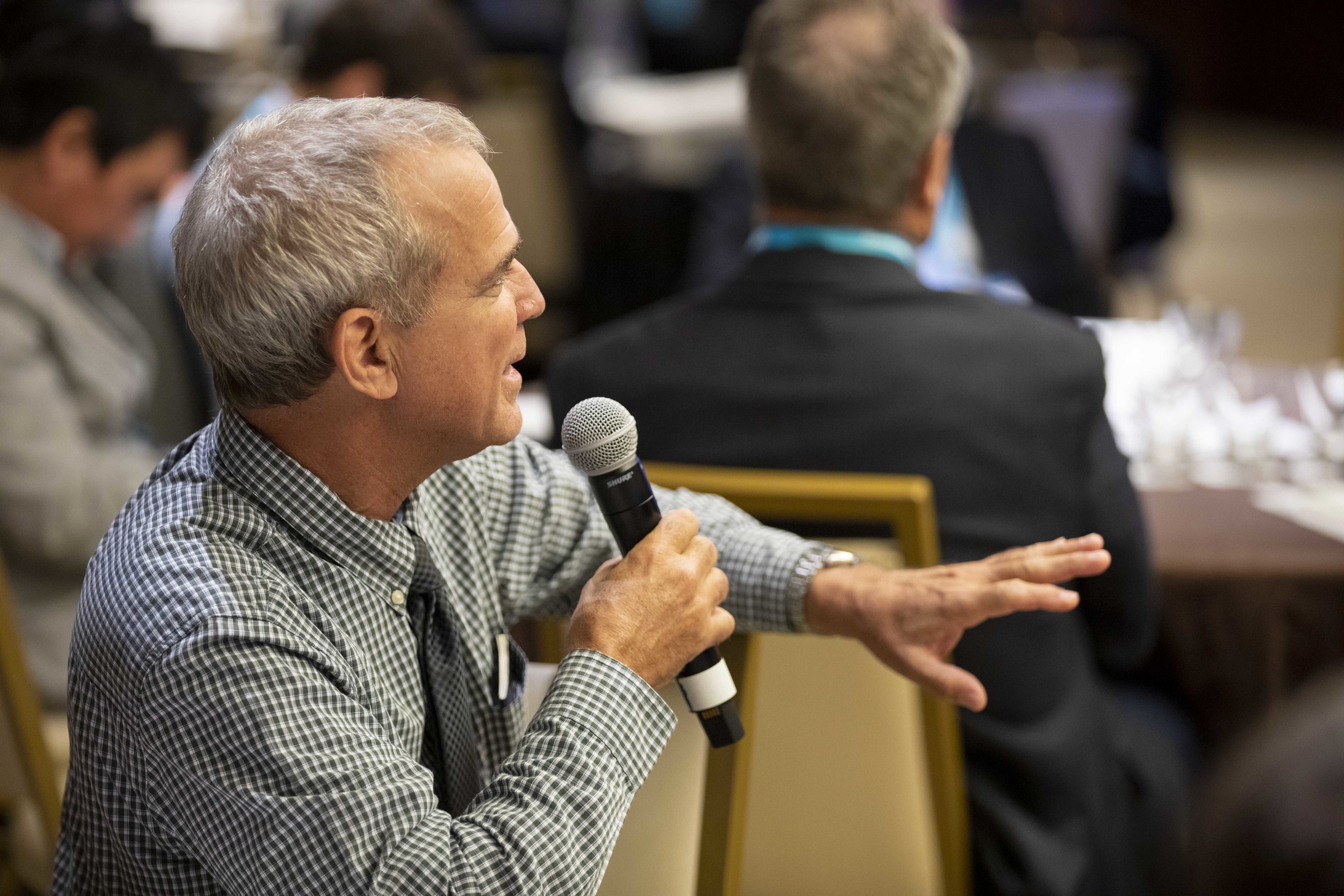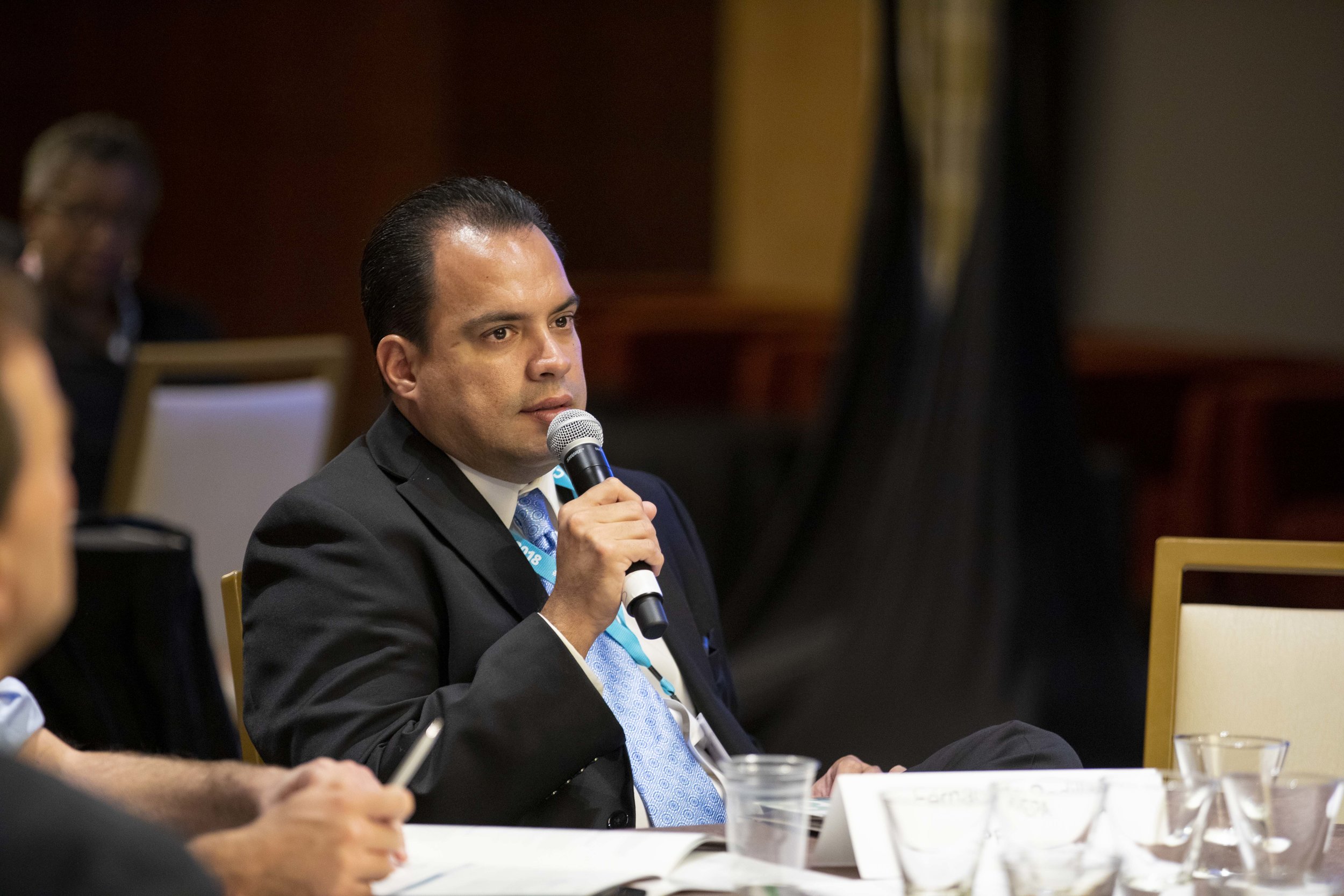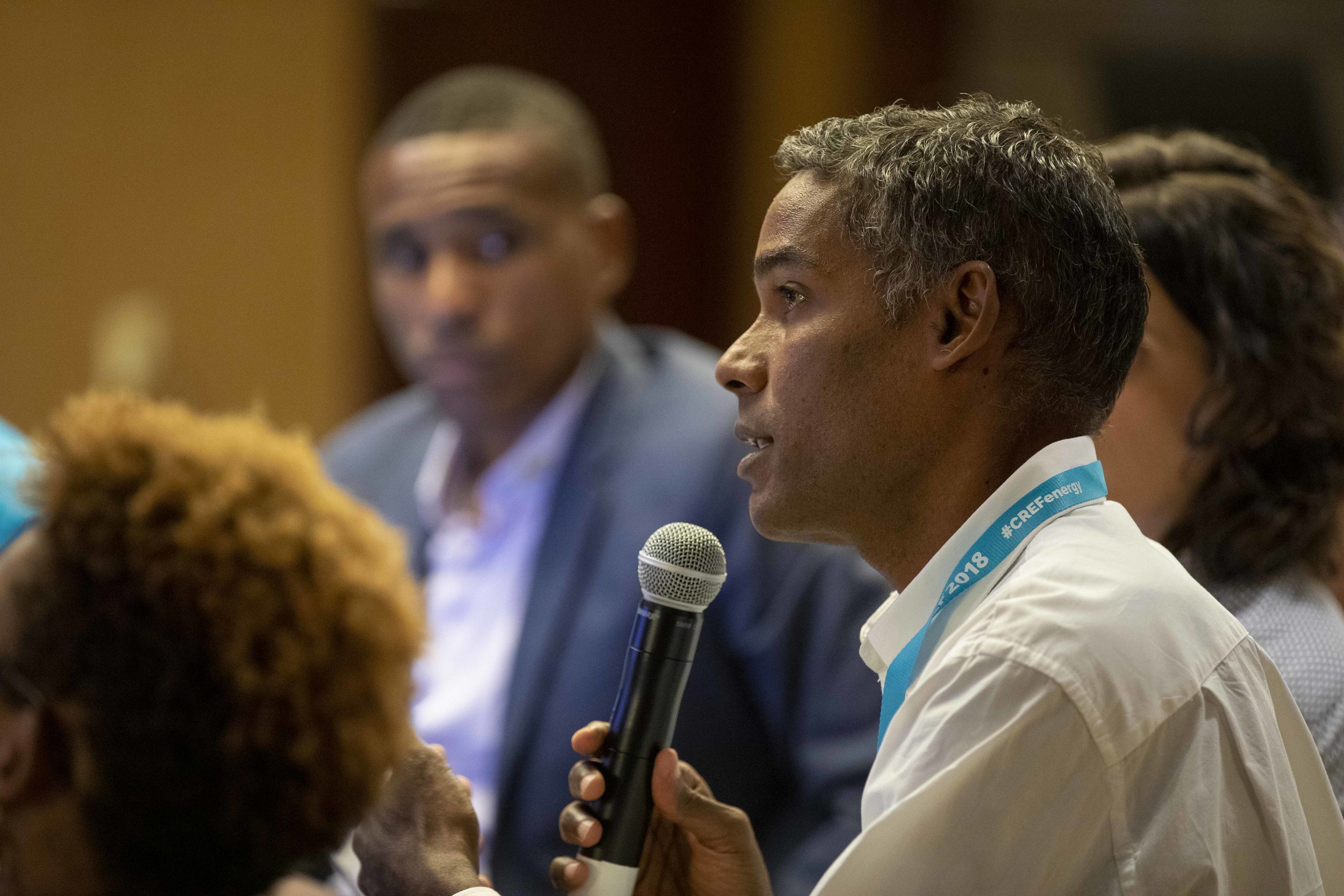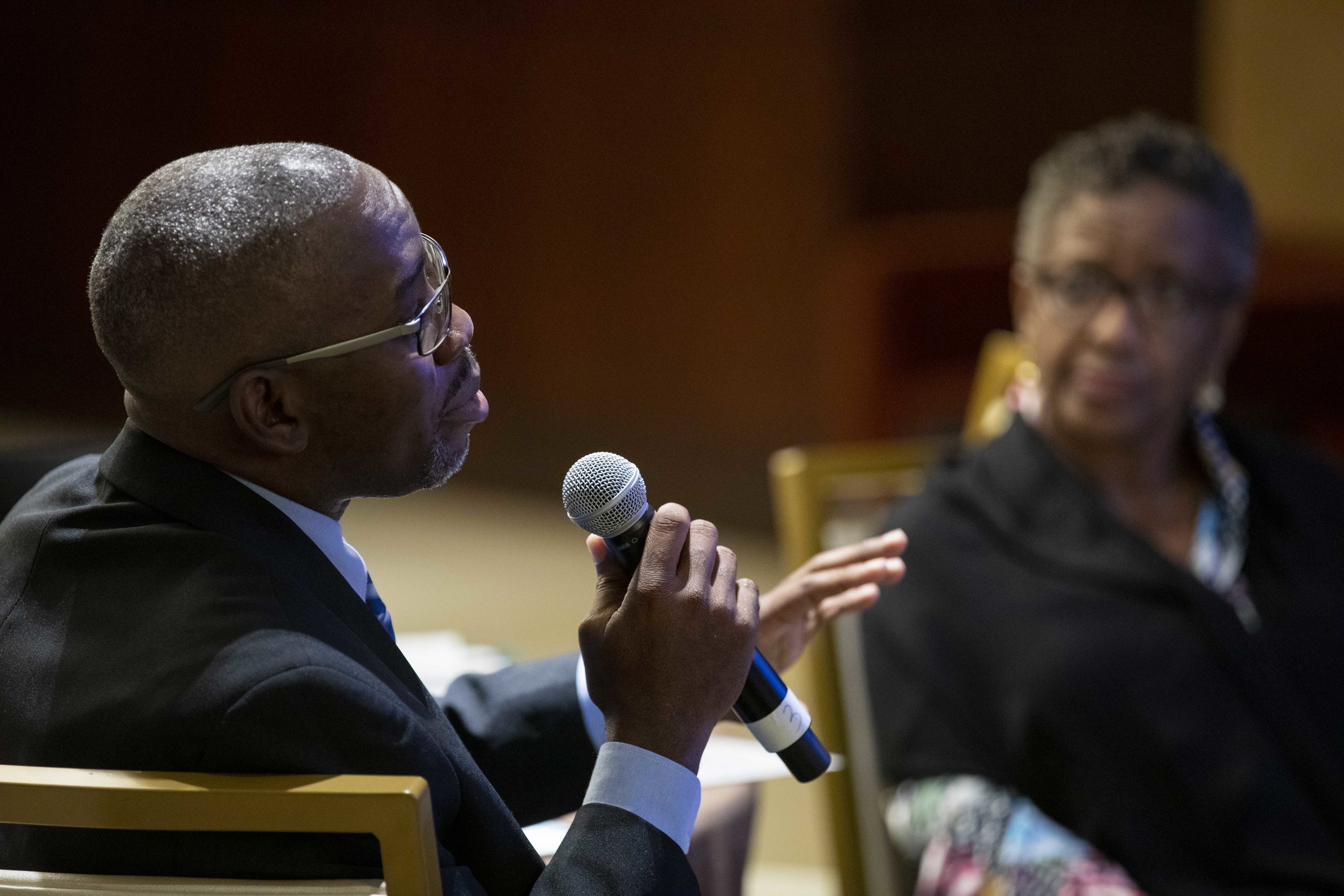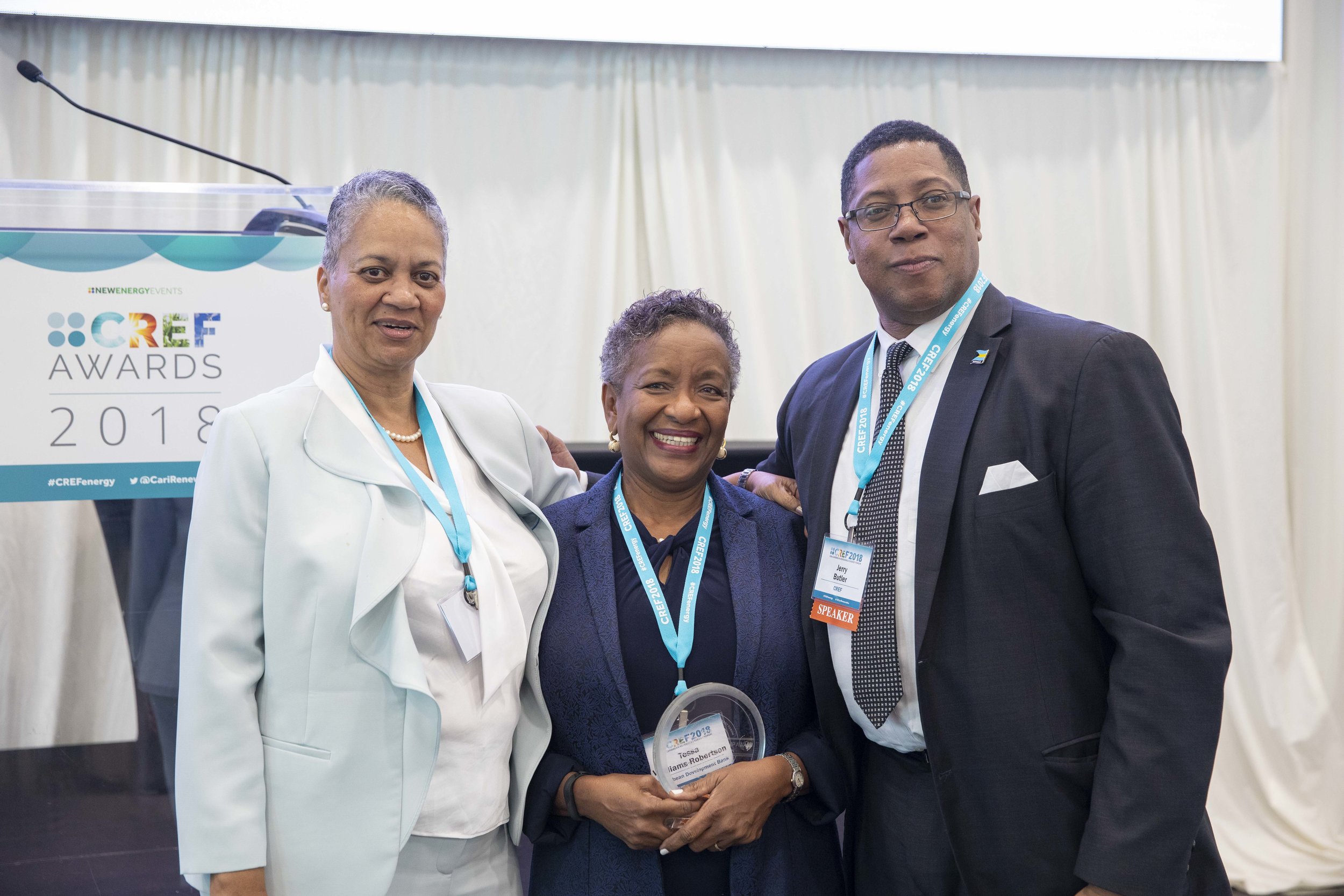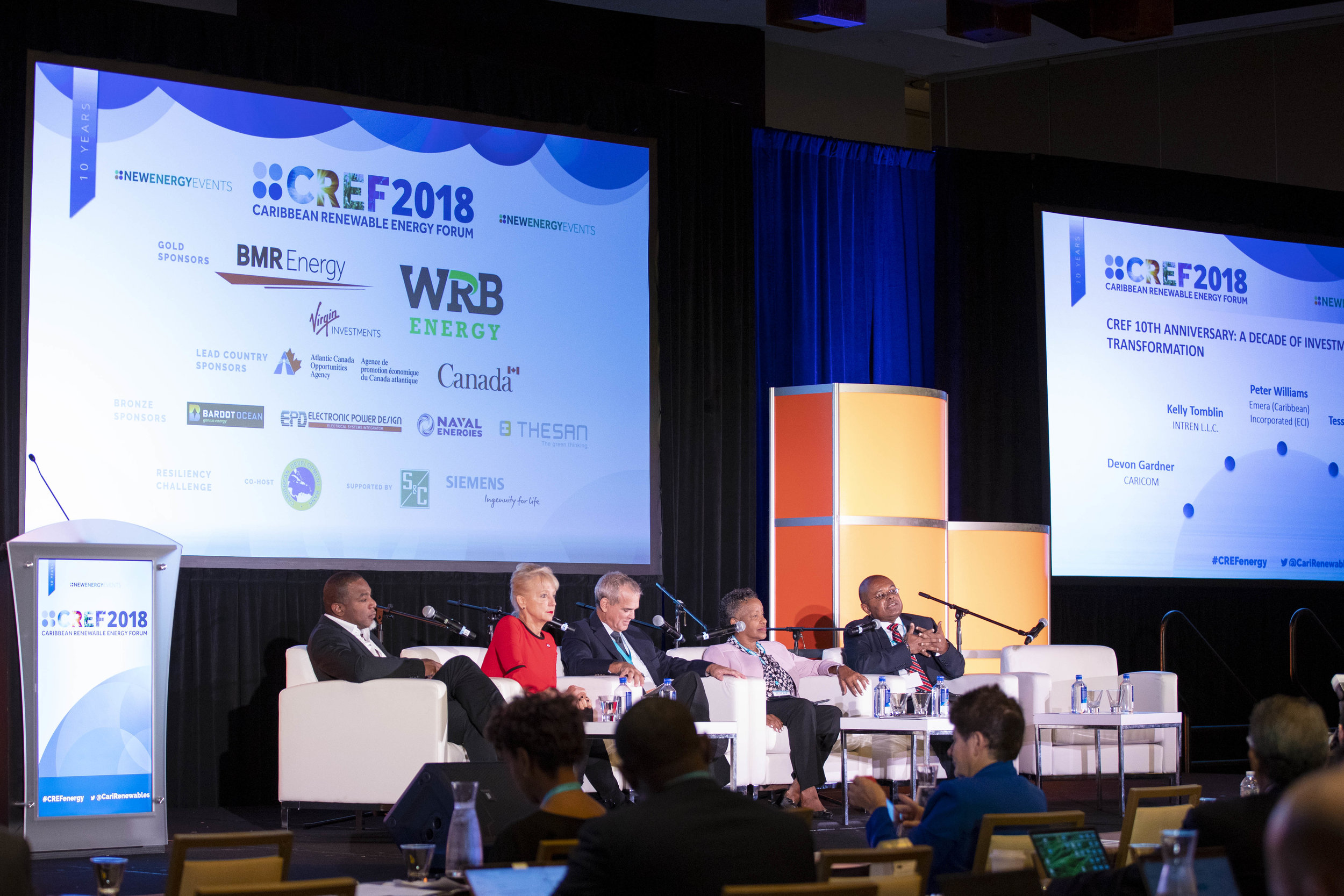- H.G. Chissell
On November 7, 2018 over a hundred island energy leaders representing 27 countries and territories, 14 island utilities, 10 island governments and notable organizations such as Clinton Climate Initiative, the World Bank, and Rocky Mountain Institute convened for the first Caribbean Island Resiliency Action Challenge, co-hosted by the Caribbean Development Bank, to vote on the most critical resiliency problem facing island communities.
Dr. Cletus Bertin, CEO of CARILEC, Rick Case, Head of System Operations for Jamaica Public Service, David Gumbs, CEO of Anguilla Electricity Company, and Fernando Padilla, Director of Special Projects at Puerto Rico Electric Power Authority competed to articulate the most detrimental obstacle to improved regional resiliency.
Given the recent tragic high loss of human life and unacceptable time to full power recovery in Puerto Rico after Hurricane Maria, Mr. Fernando Padilla of PREPA poignantly explained the tremendous need to develop and deploy a distributed generation solution that, “provides enhanced localized grid support in the event of future catastrophic damage to vulnerable transmission systems.” Conversely, Dr. Bertin, CEO of CARILEC reminded stakeholders that in order to save future lives, restructuring policy and regulatory frameworks to facilitate investments and foster innovation is essential. Rick Case, Head of System Operations of Jamaica Public Service, warned fellow stakeholders that a resilient grid with envisioned high penetrations of renewable energy will need to meet both blue and gray sky days to best protect and support dependent consumers. Further, Mr. Case argued that this type of resilient grid must justify it’s premium price tag in exchange for the forecasted avoided loss of life and widespread destruction.
With the winning problem statement challenge, Mr. Gumbs inspired the room by stating, “The most urgent problem to collectively address regarding regional resiliency is determining where to invest scarce human & capital resources while improving, reliability, effective emergency response and driving a new economy transition.“
After aligning on the most important problem, the entire room of stakeholders engaged in a lively Roundtable Action Challenge where eleven roundtables competed to present the most important action to address the winning problem statement. Each proposed action needed to be achievable within 12 months and needed to have a 60 day and 90 day milestone. At this point all attendees in the packed room shifted from being participants to impassioned, engaged stakeholders. Aware that a significant impact on regional island resiliency means preventing the avoidable deaths of future of mothers, fathers, children, elderly, and the sick, the room, representing an inspiring diversity of culture, languages and tremendous intellect and experience, demonstrated a humbling sense of focus, urgency and compassion.
Ultimately, in a very close vote, the room of 114 stakeholders selected Table 9’s inspiring commitment to deliver a Critical Infrastructure Safeguard Plan within 12 months. To do so, Table 9 outlined a 60 day milestone to conduct a feasibility study to identify and prioritize essential safeguards for designated critical infrastructure and a 90 day milestone to conduct a benefit cost analysis of investing in these safeguards.
Inspired by the collaboration, passion and potential impact of successfully accomplishing the winning 12 month Action, Matthew Perks, CEO of New Energy Events and CREF, announced the creation of the Island Resilience Action Challenge (IRAC) Impact Award to be given out at CREF 2019, should Table 9 successfully accomplish this high visibility task.
Inspired by the vote of confidence and the strong level of engagement at their table, Table 9 established an Action Task Force with two co-leads: Clark Wiedetz of Siemens - a co-sponsor of the event - and Barbara Vargas, Attorney at Law from St. Lucia. Energy thought leaders in the room, including Rick Case of Jamaica Public Service and Chris Evanich of S&C Electric - another co-sponsor of the event - volunteered to join the Action Task Force. It was an excited experience to see such alignment, focus and offered accountability.
In an unexpected and exciting twist, Table 10, the close runner up, decided to move forward with their 12 month Action to develop and launch the Caribbean Energy Resiliency Corps. Consequently, there is a now live competition between Table 9 and Table 10 - the latter of which is currently led by Jennifer DeCesaro, Director of US Dept of Energy, and Alisa Kreynes, Program Lead of Hatch - to win the CREF 2019 IRAC Impact Award. Should both teams successfully accomplish their 12 month Action, a final winner will be voted on at CREF 2019.
In partnership with New Energy Events, H.G. Chissell, CEO of Advanced Energy Group and Managing Director of Advanced Energy Agency, developed the program and facilitated the 4 hour workshop. For more information on the agenda, panelists and roundtable discussion leaders, you can go here.

